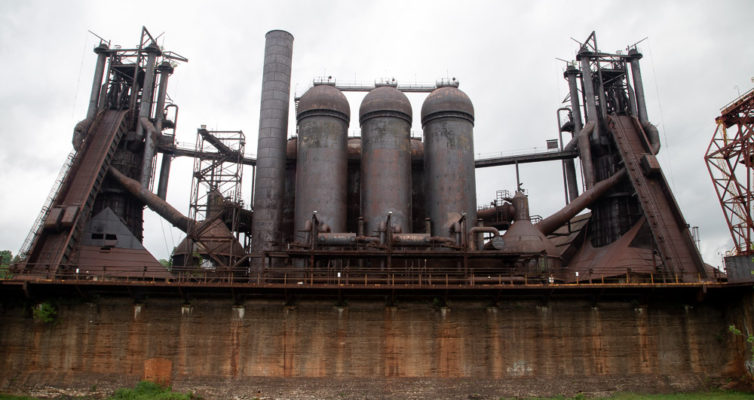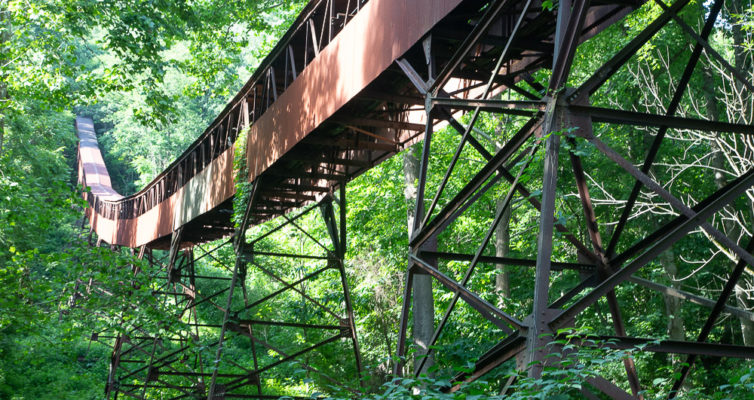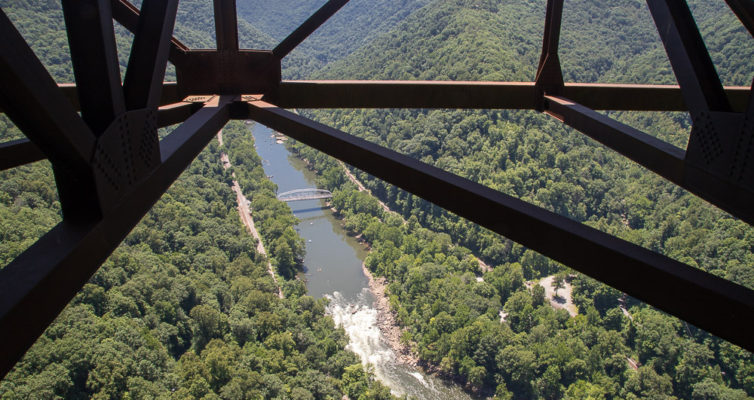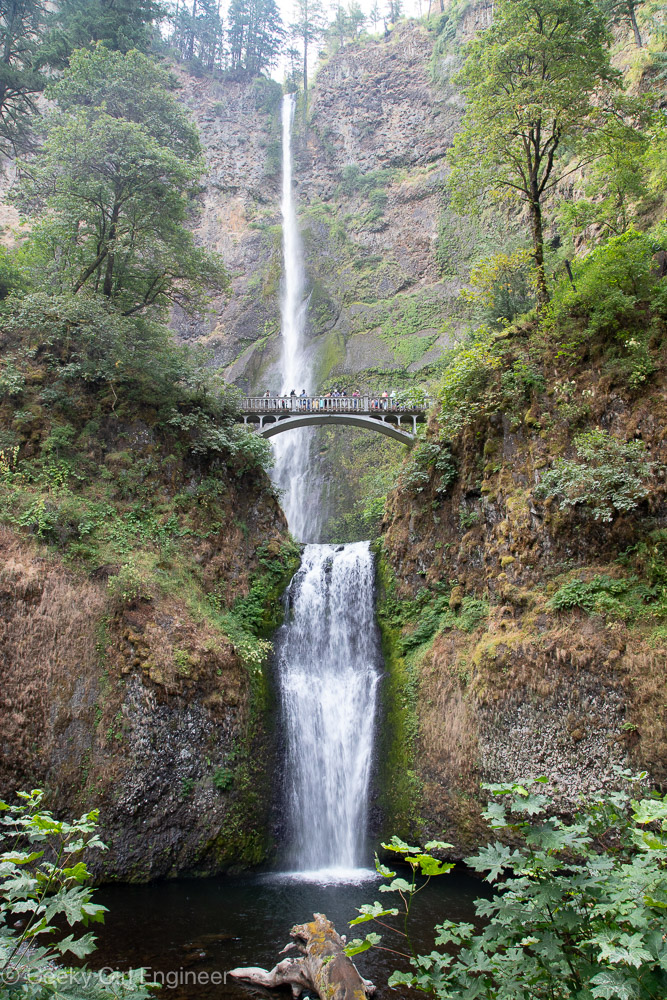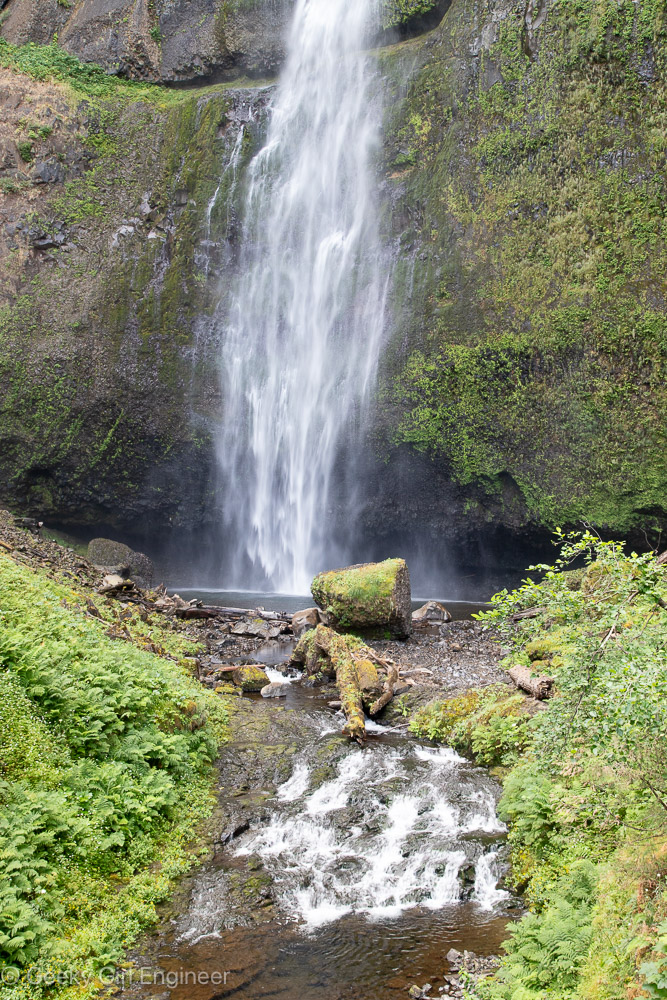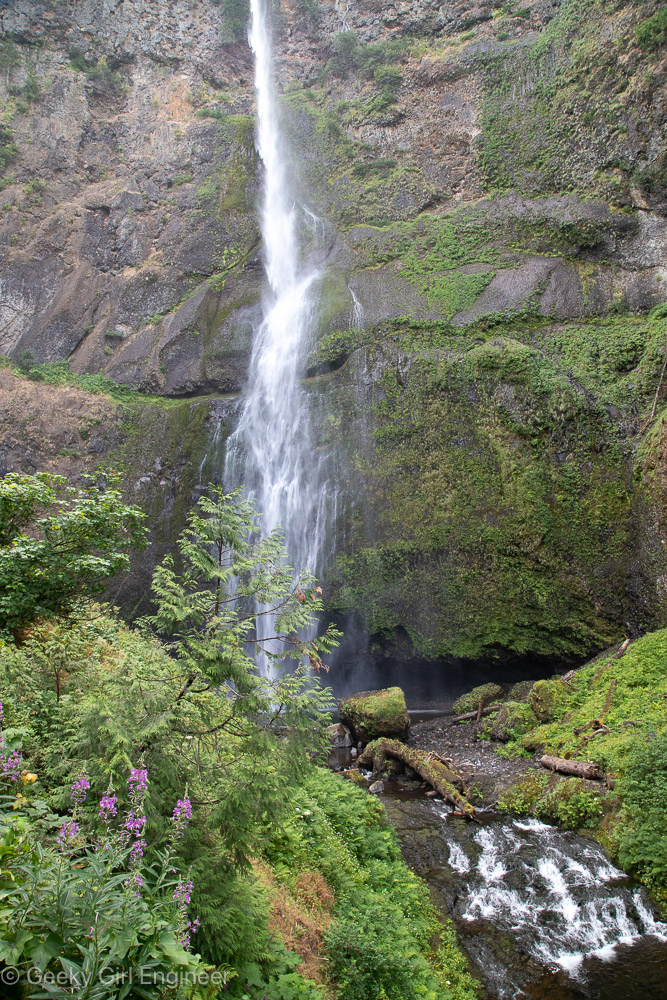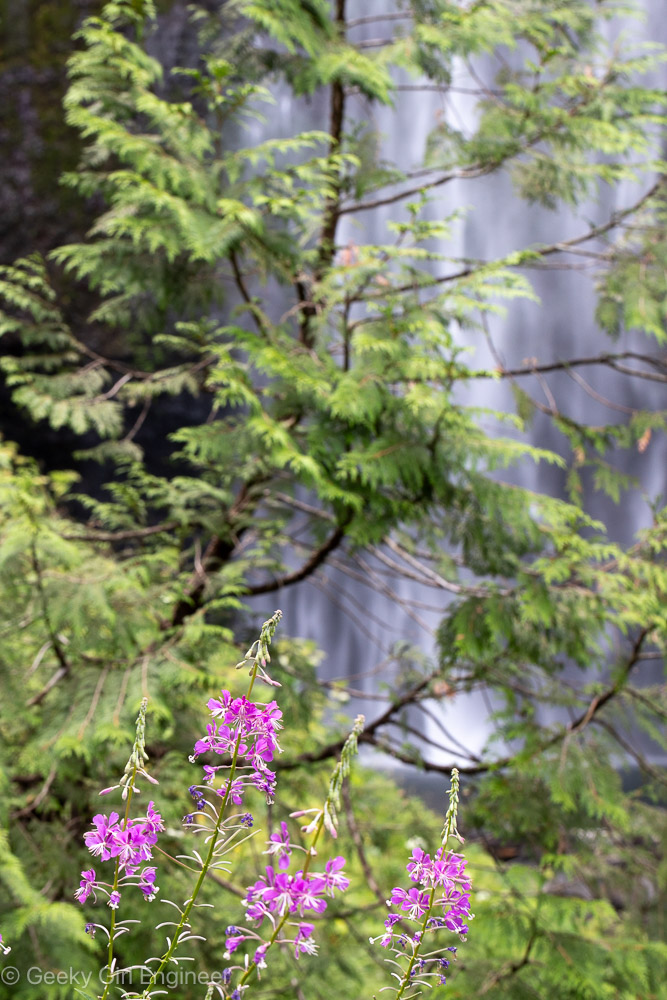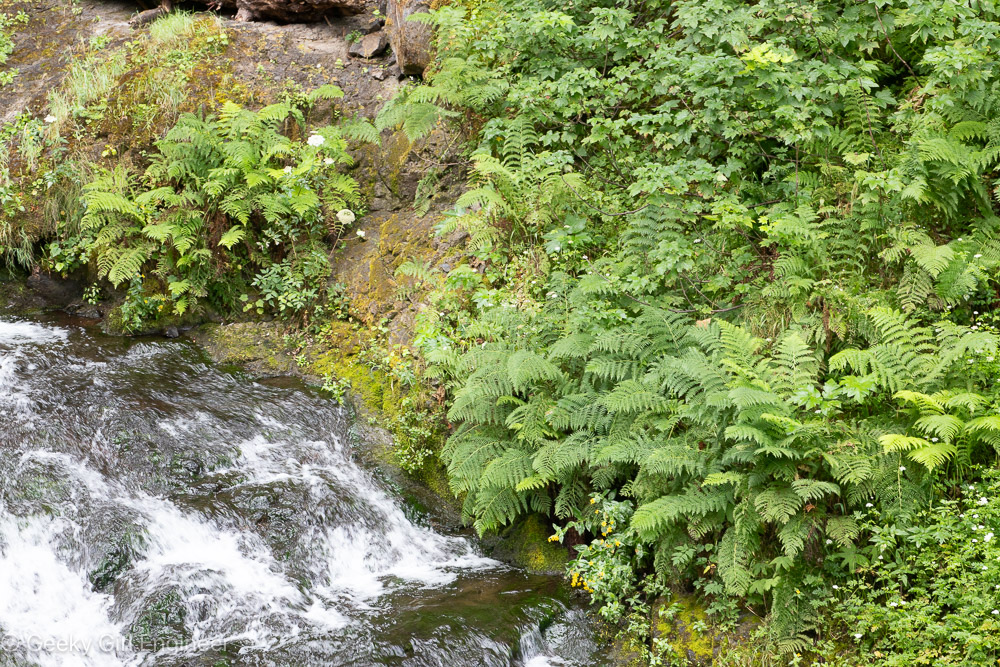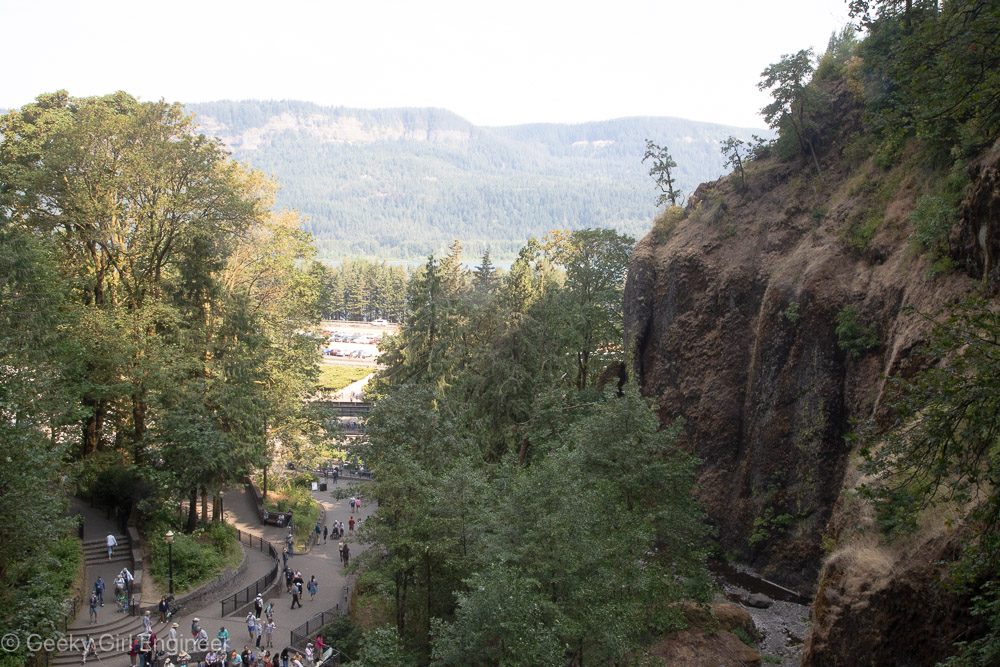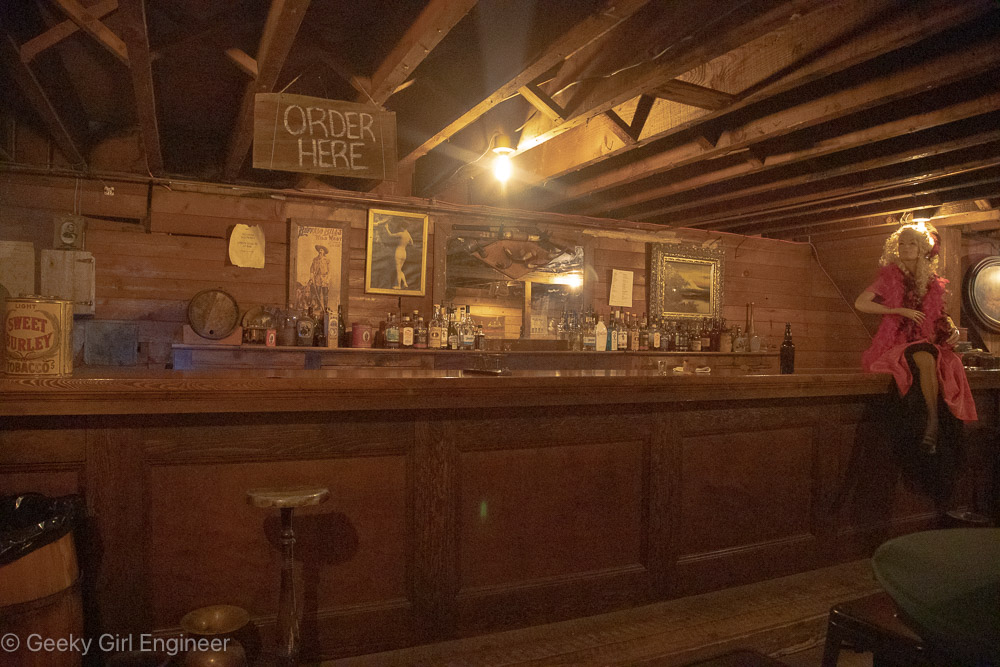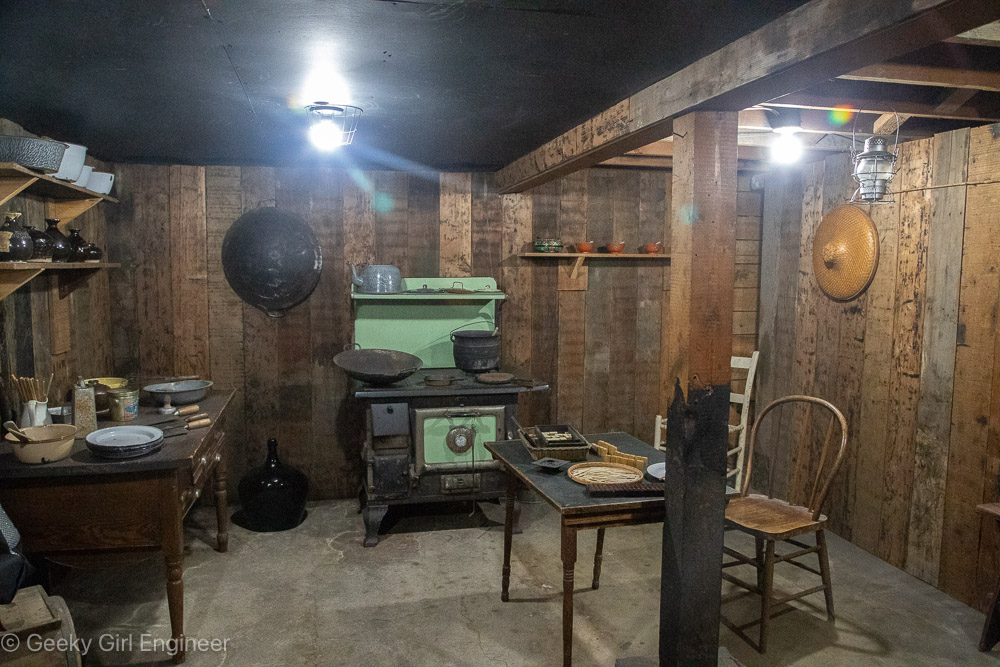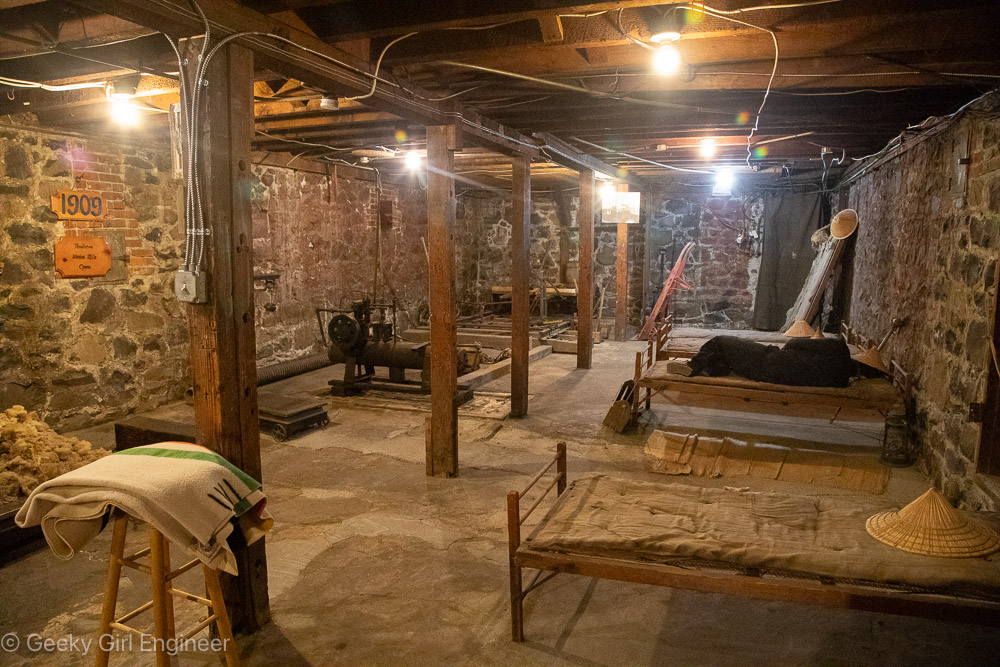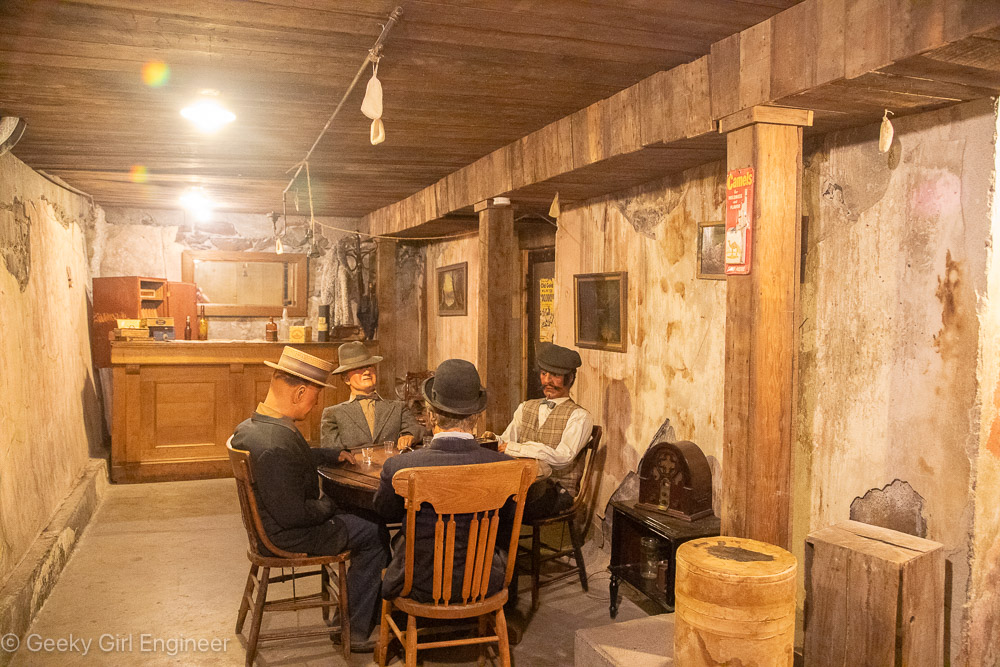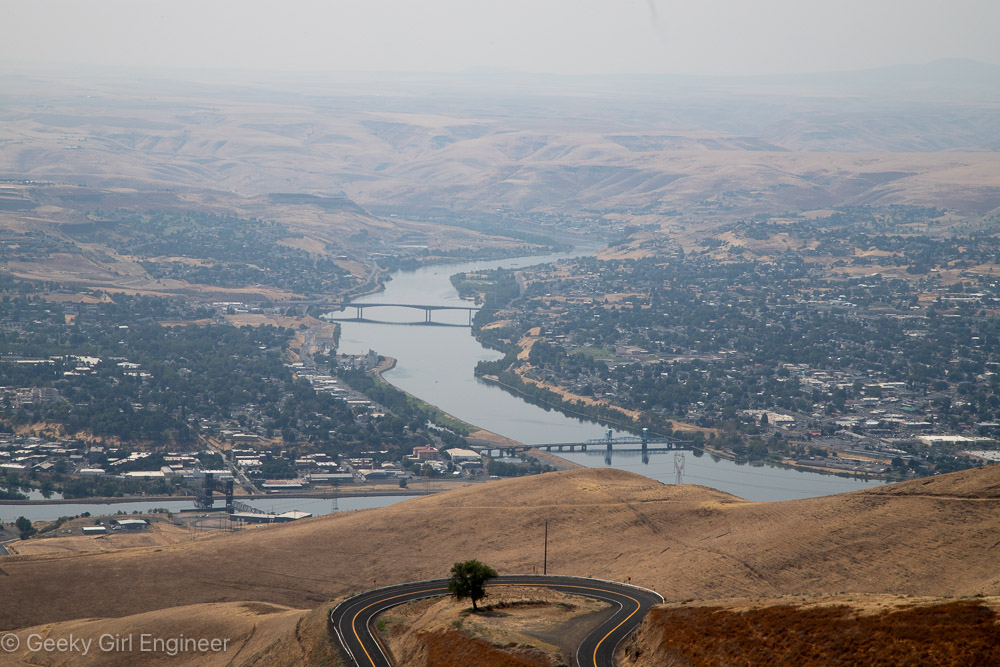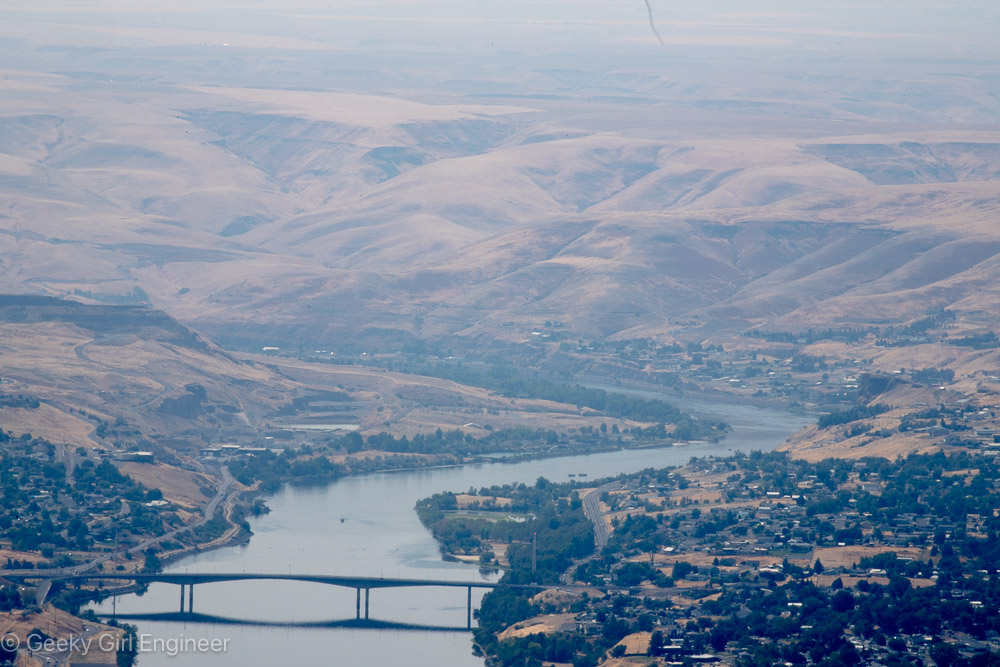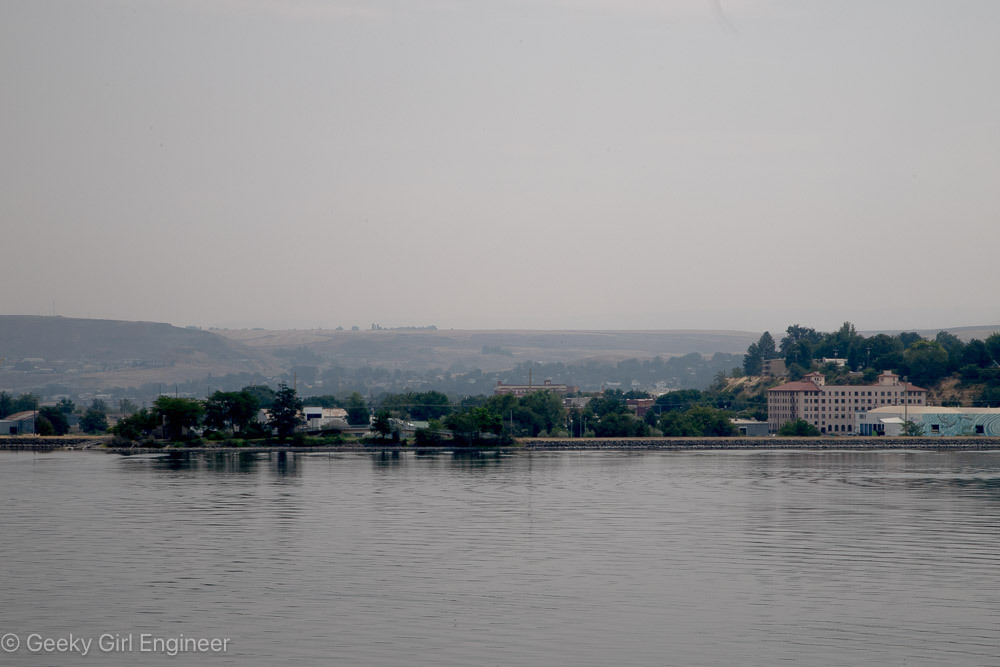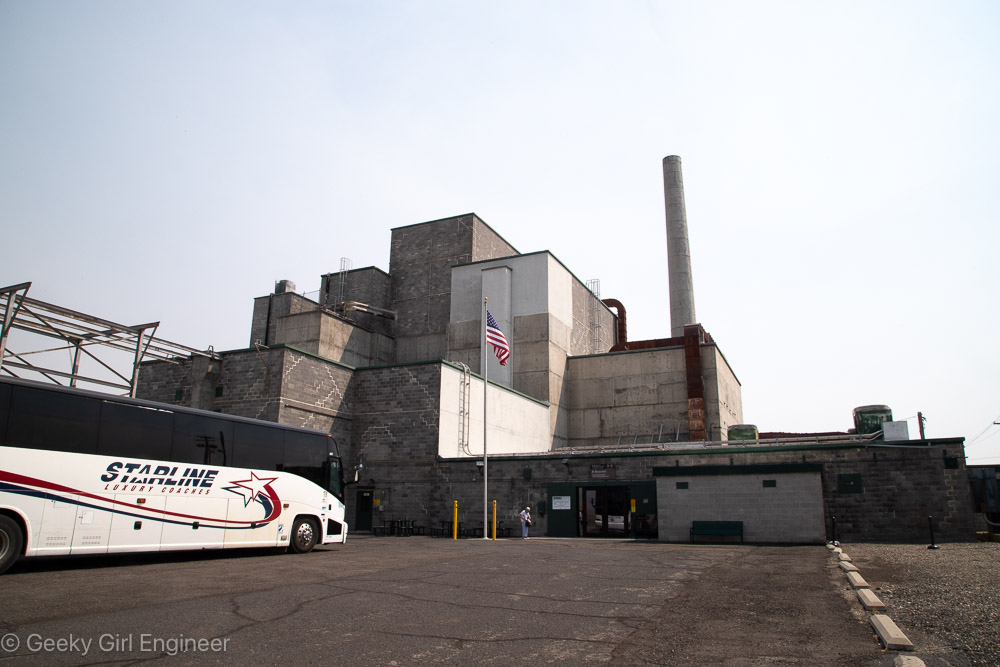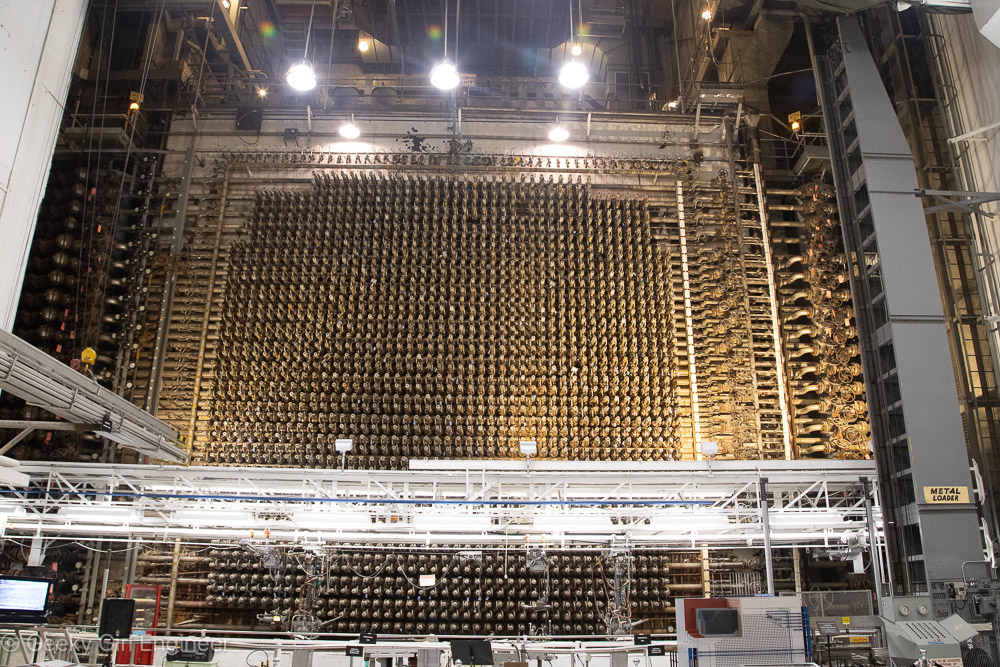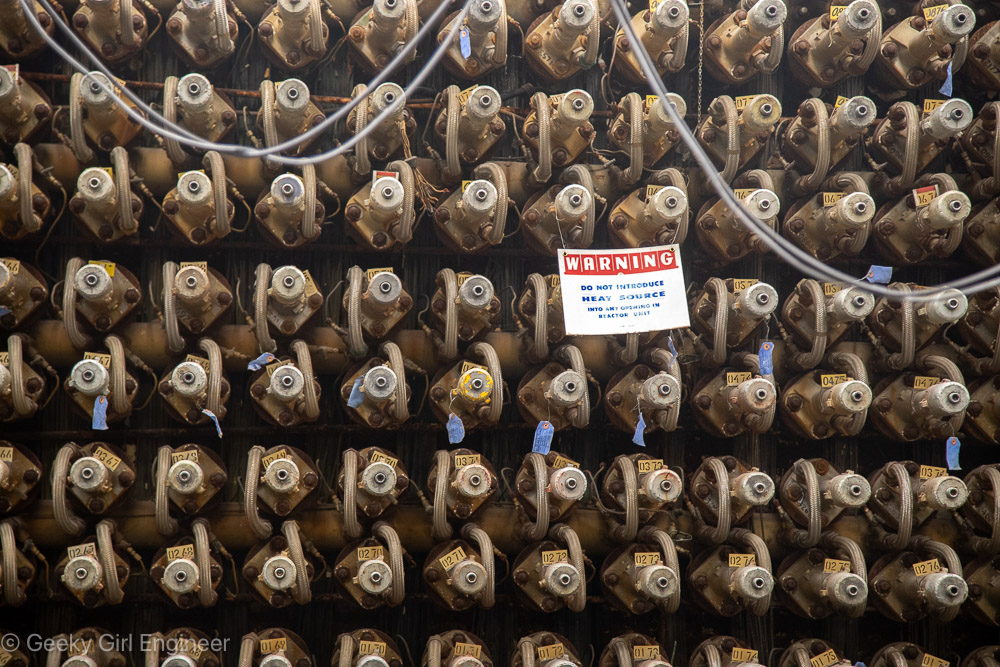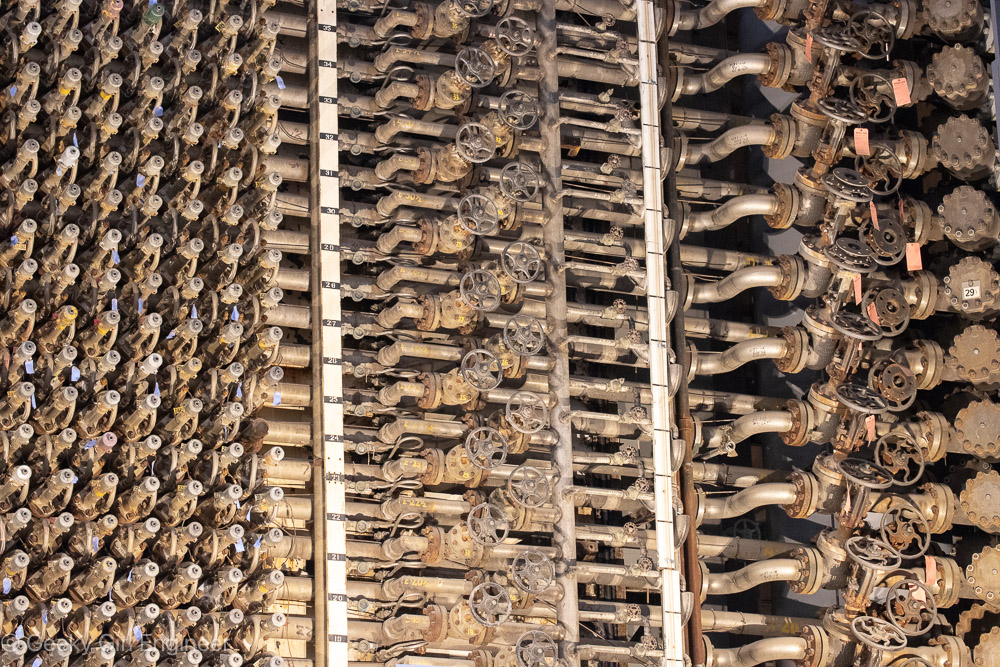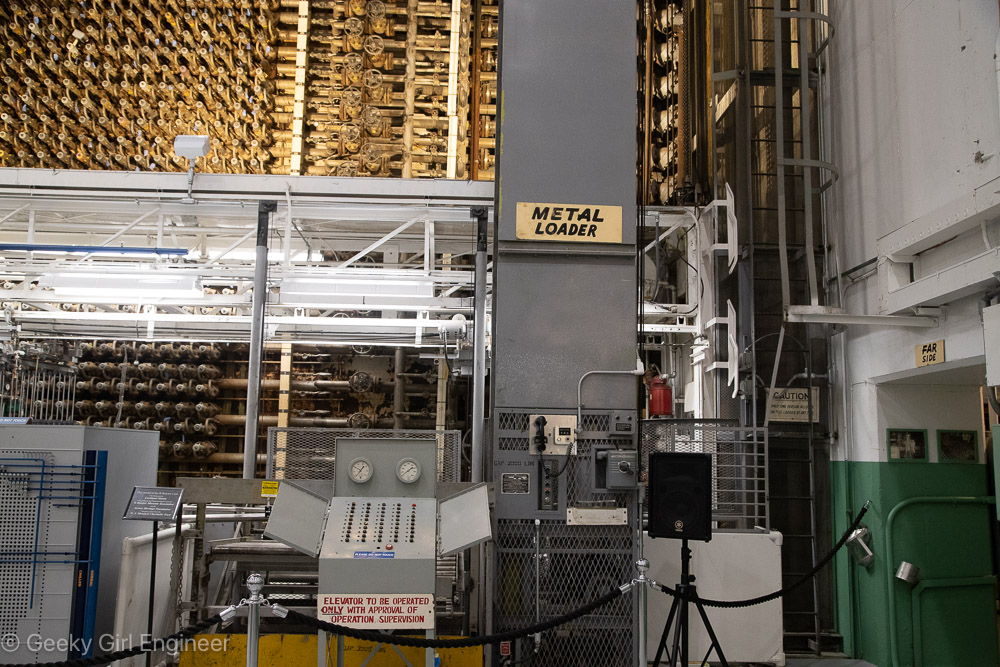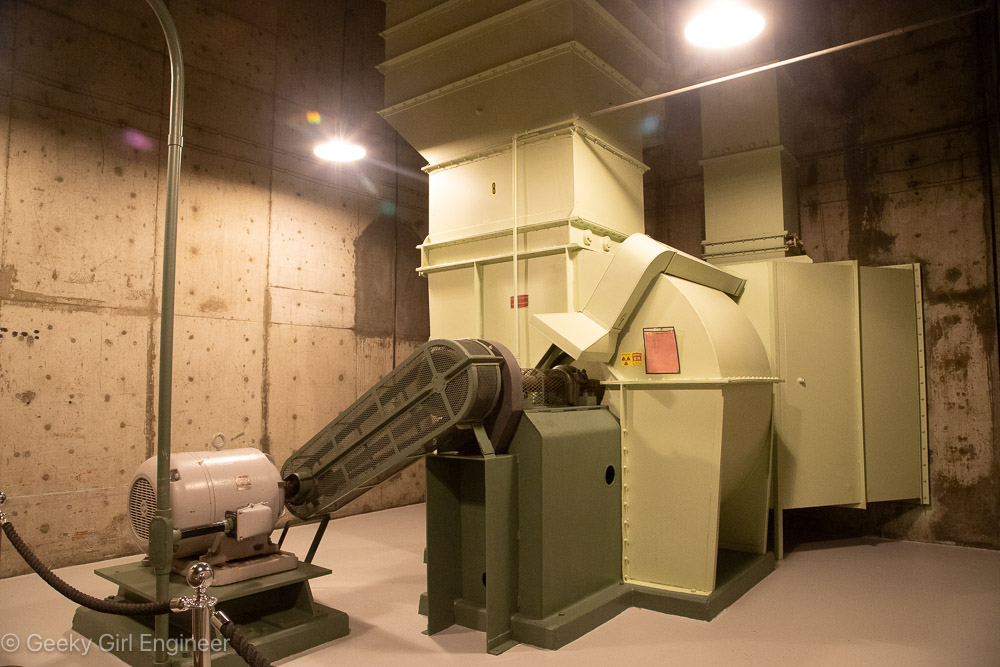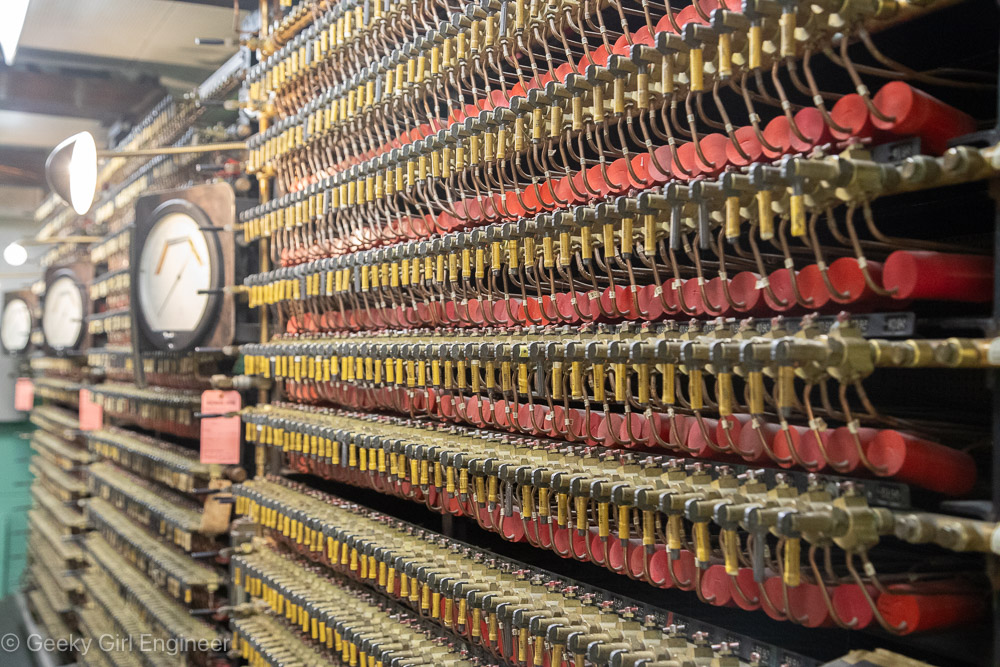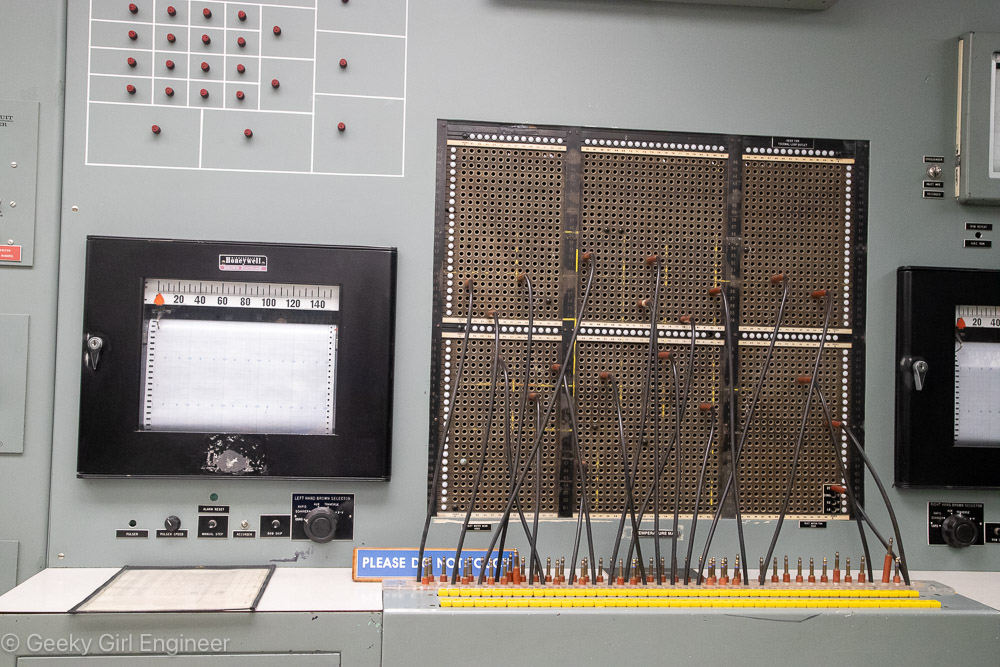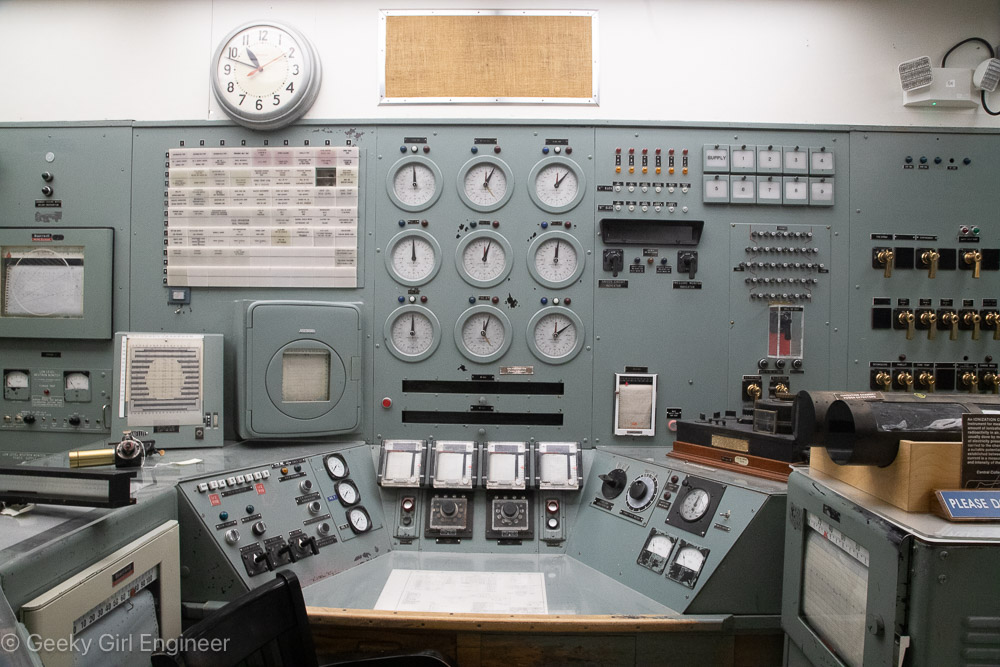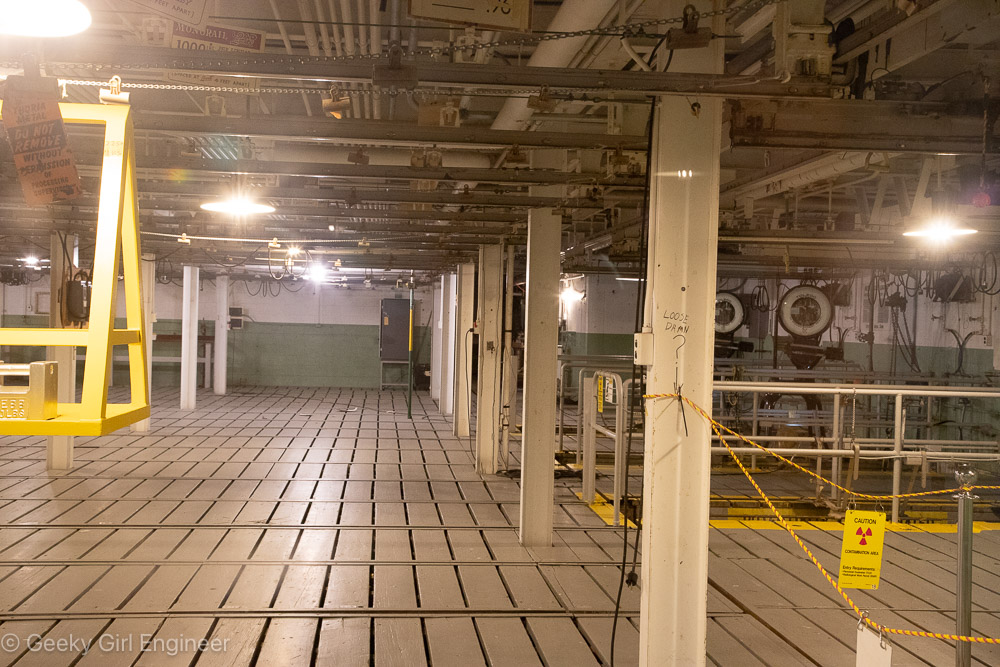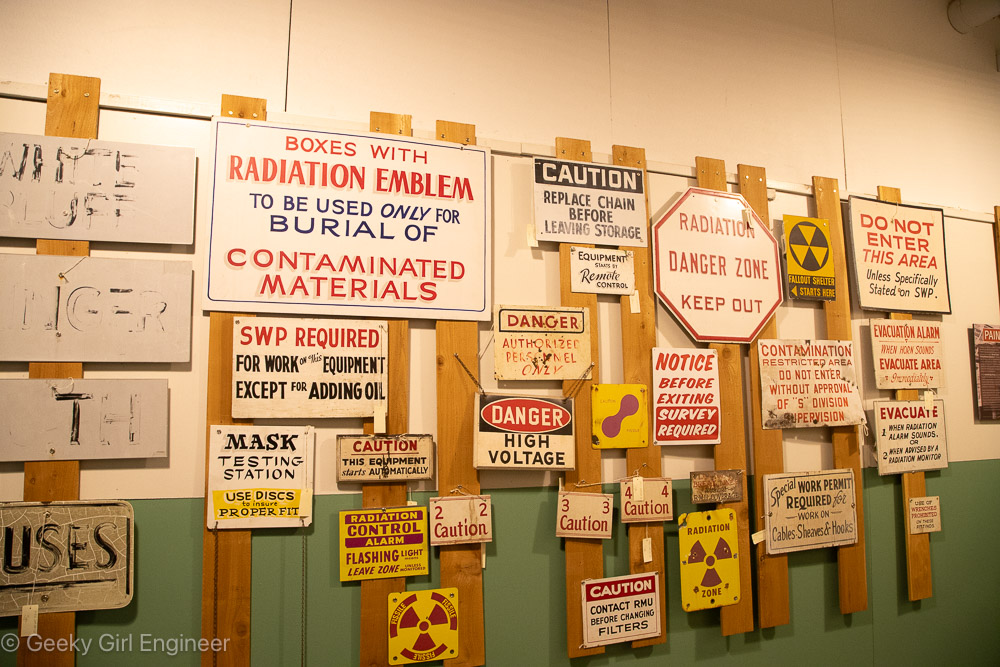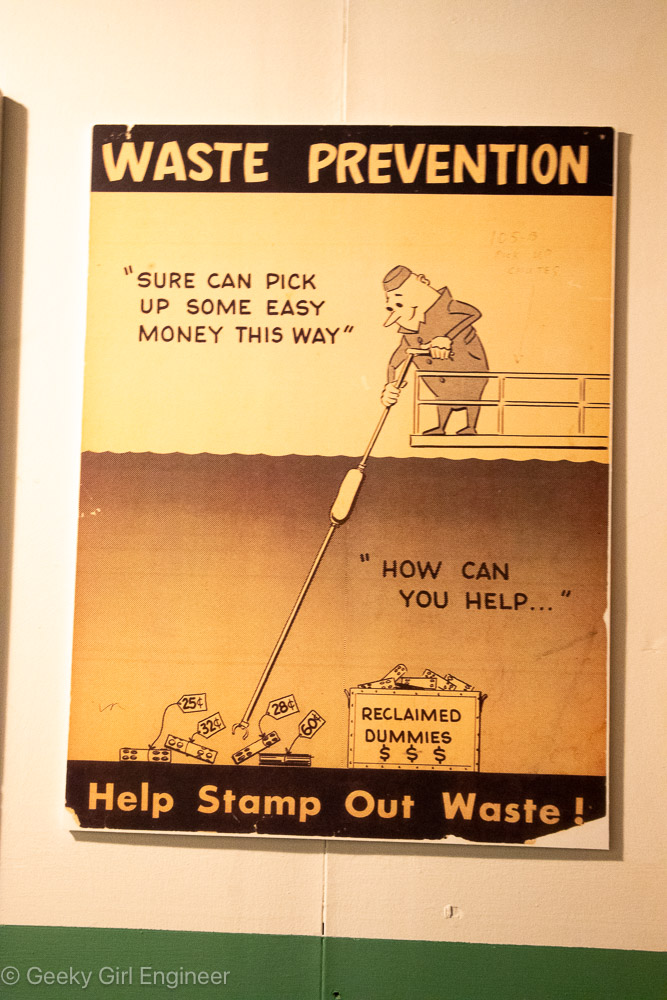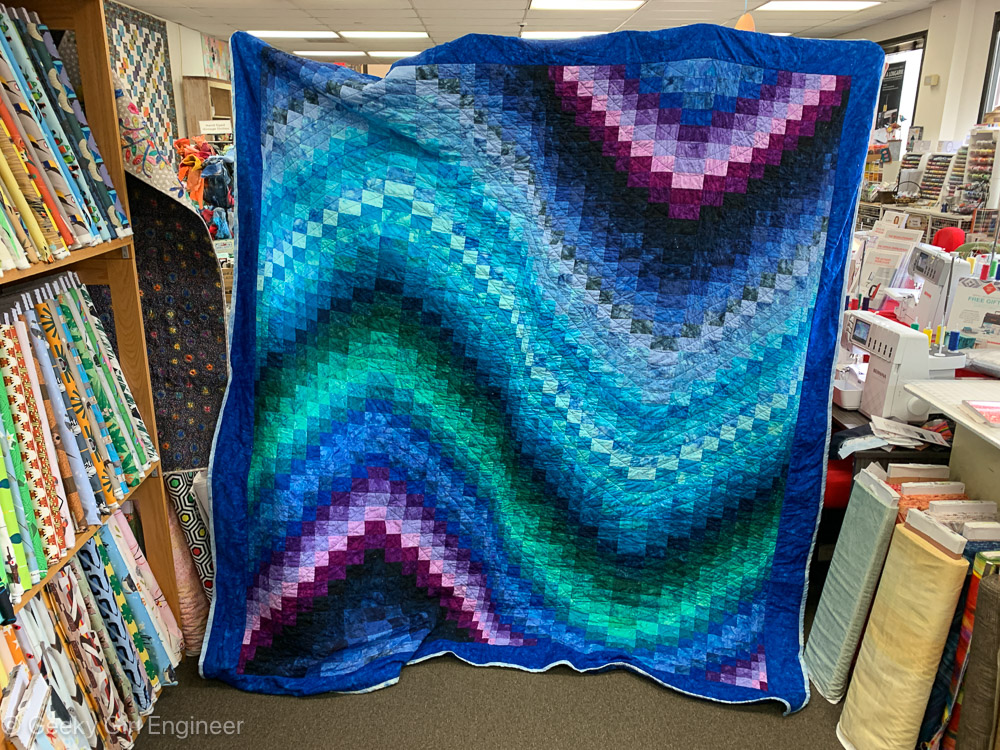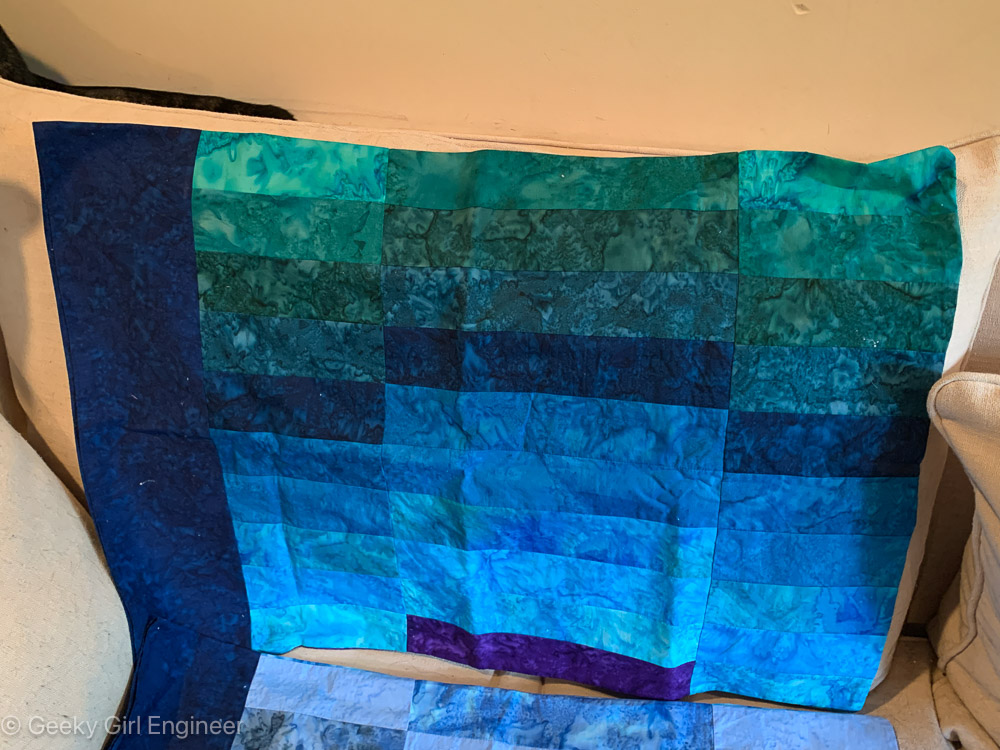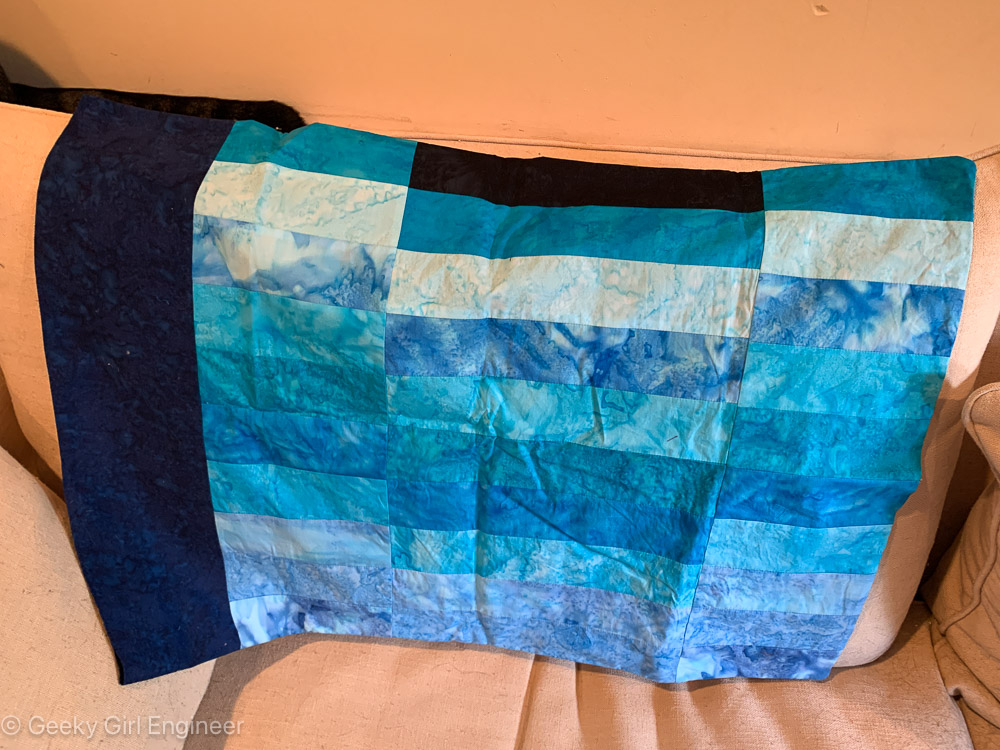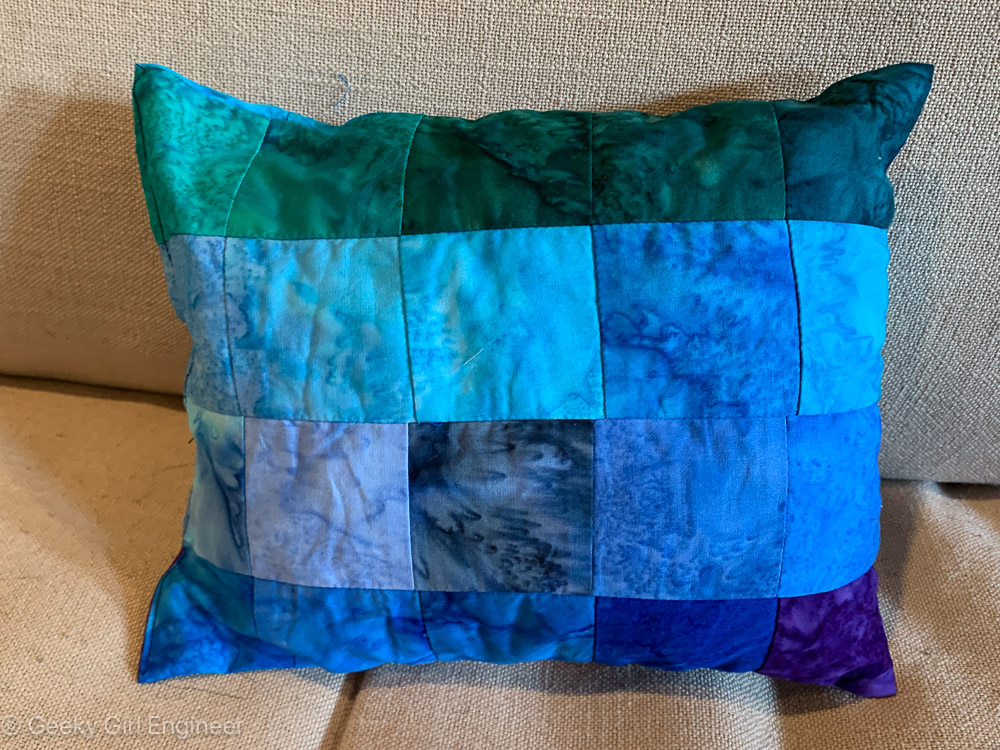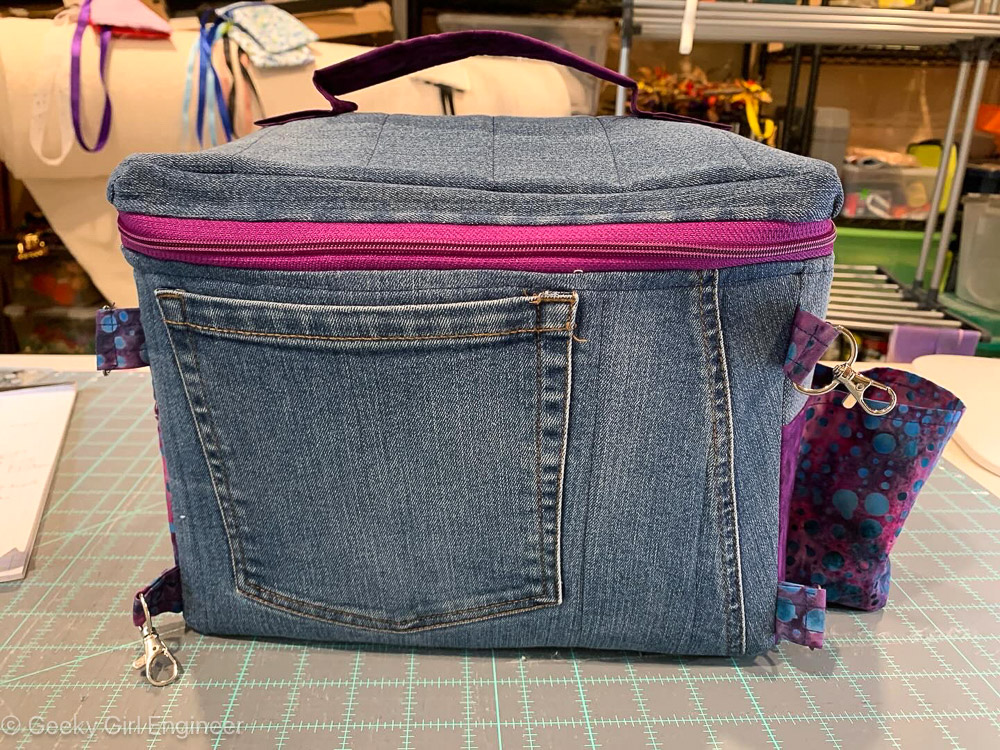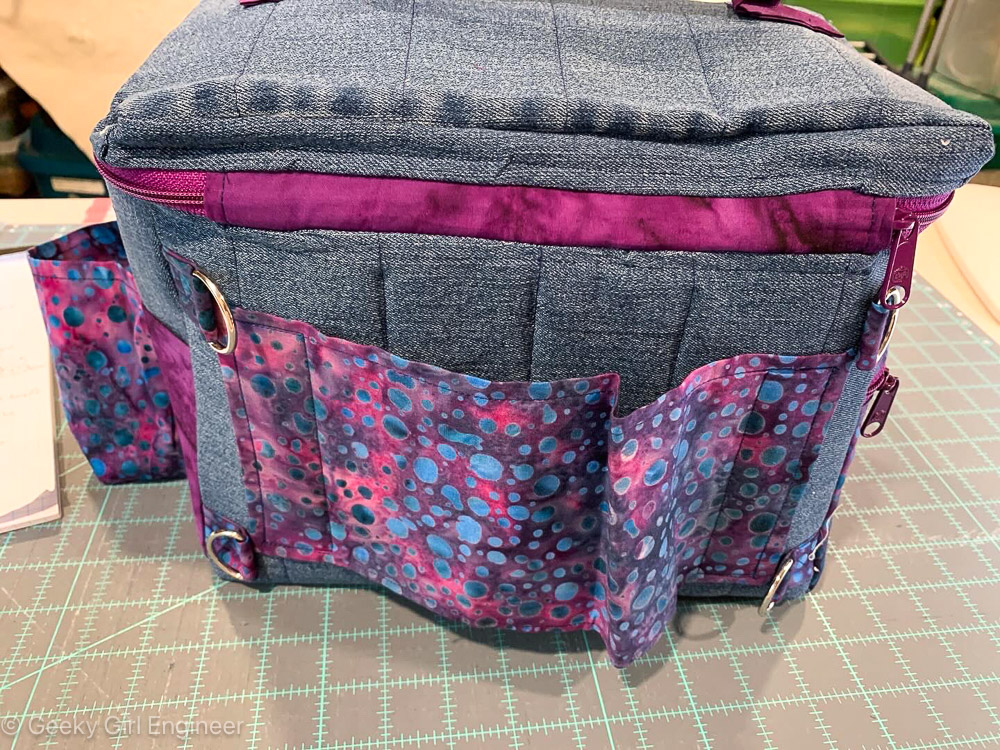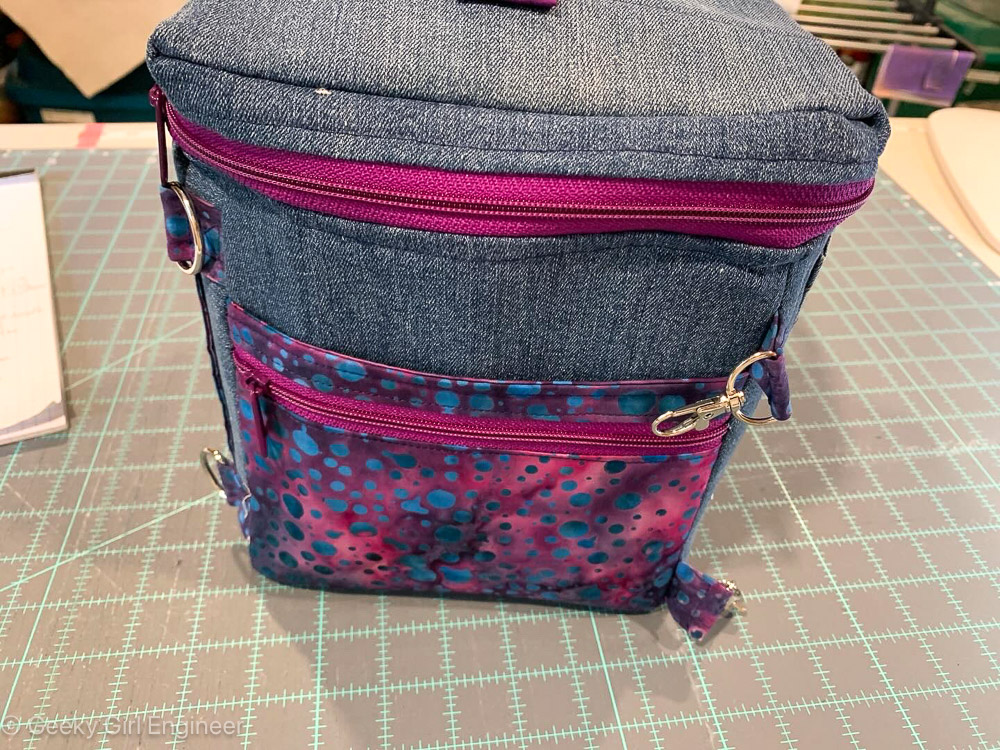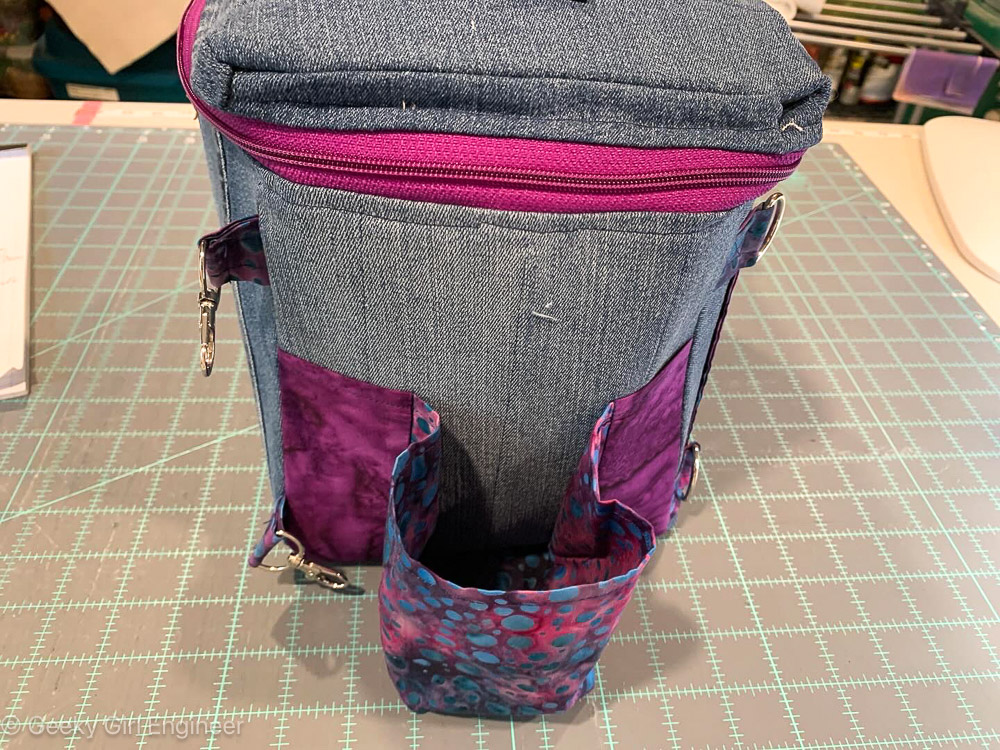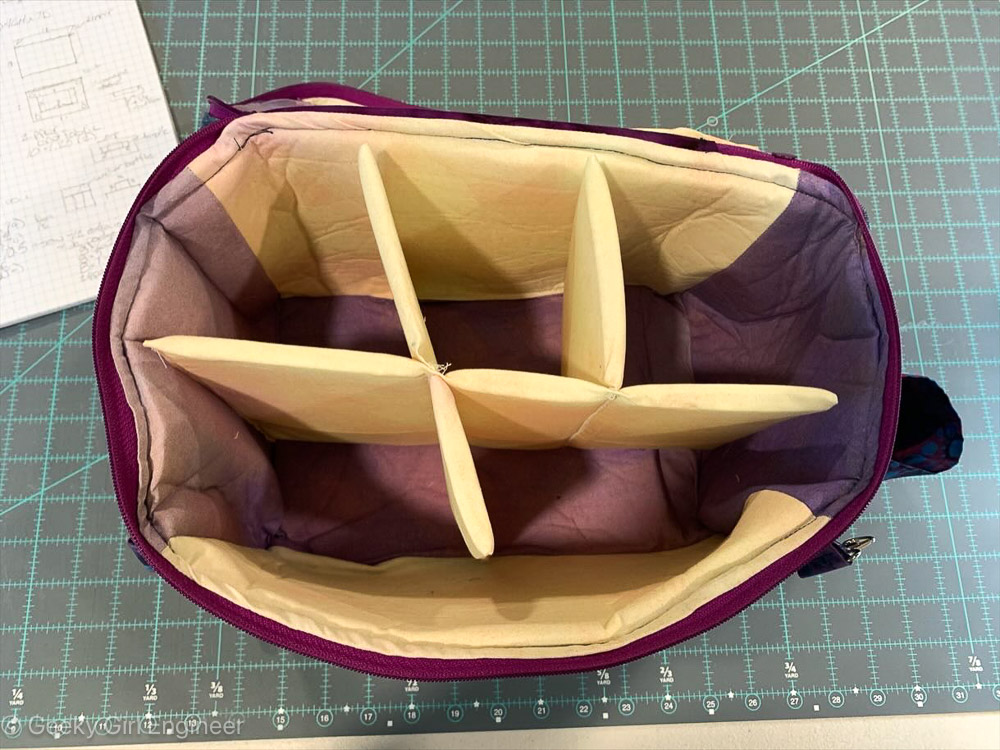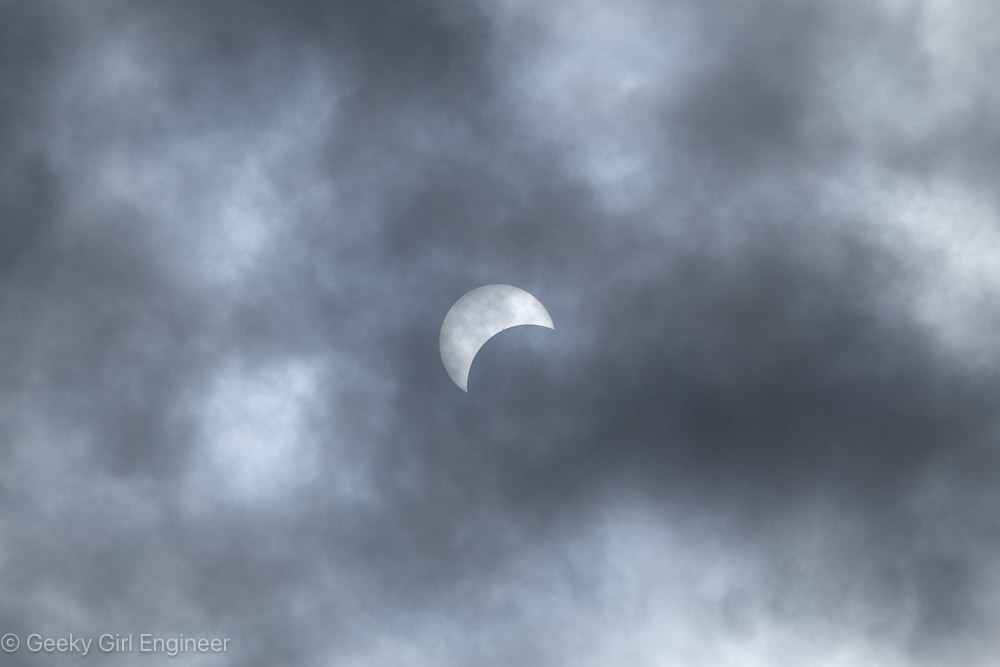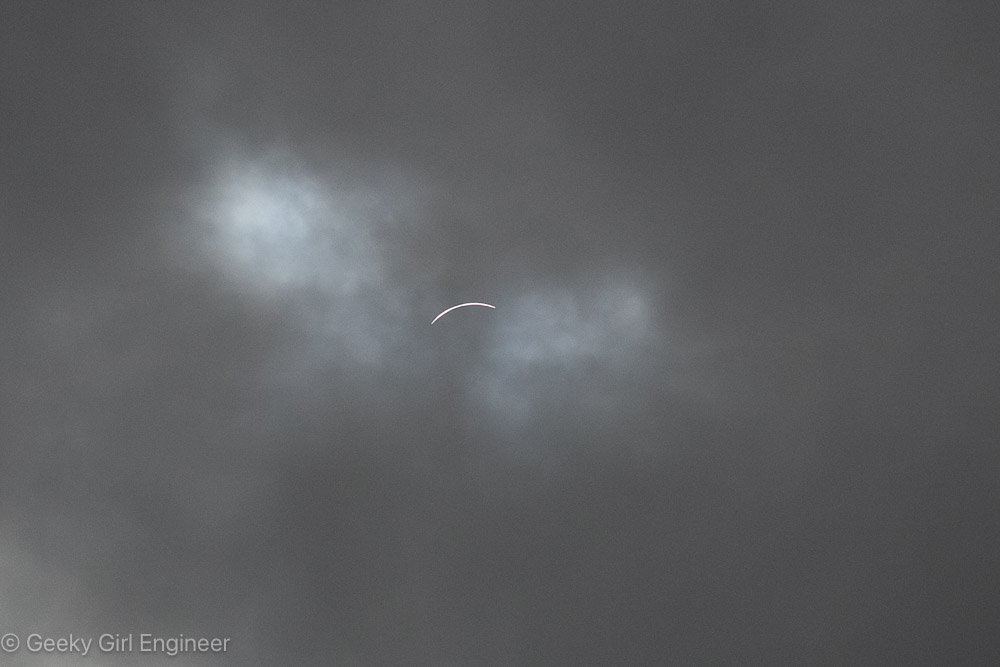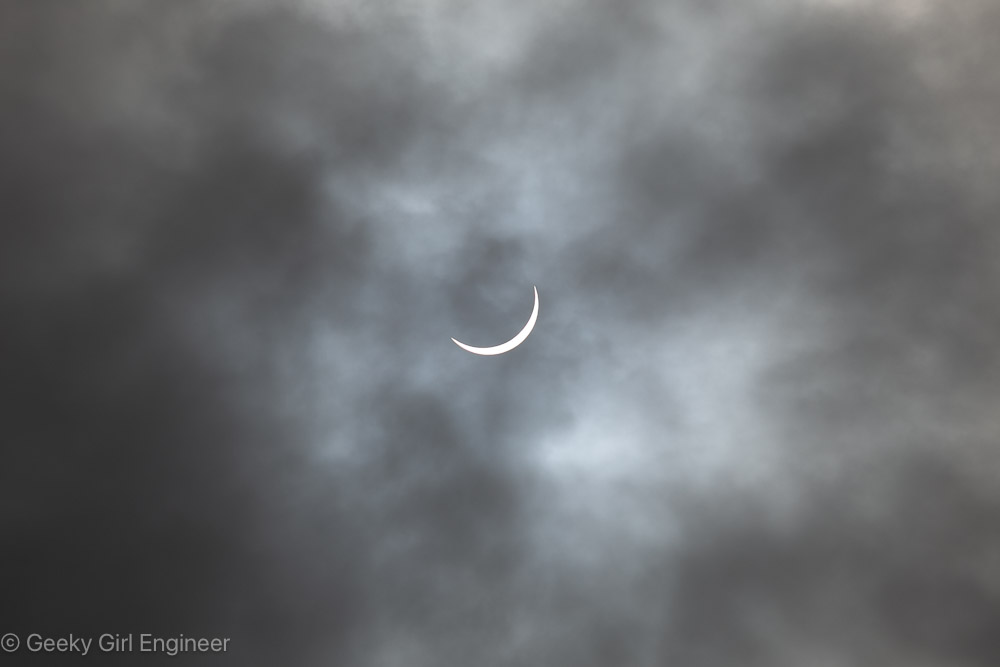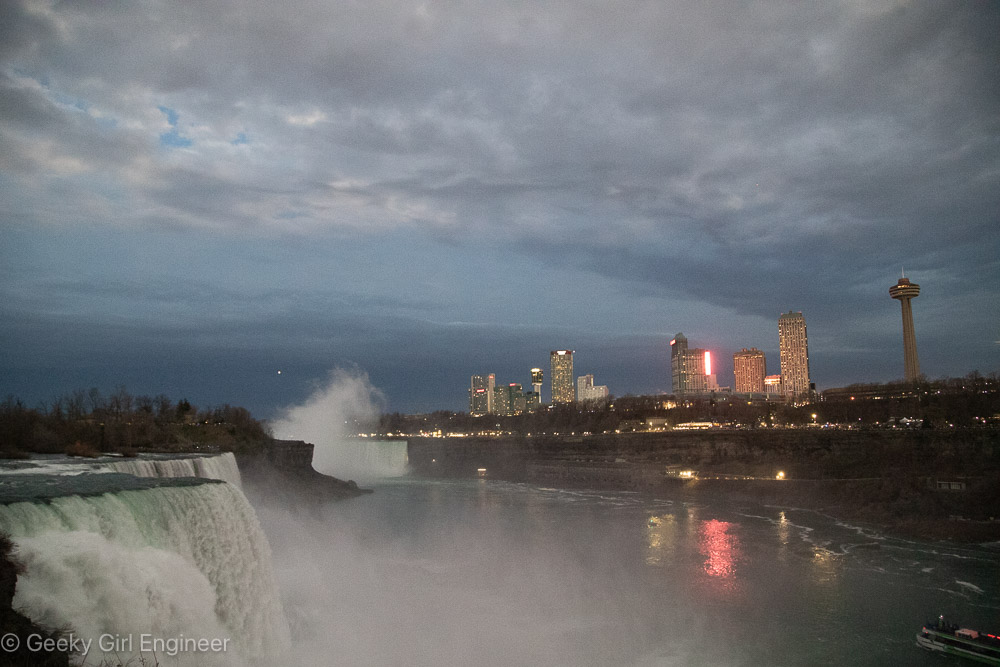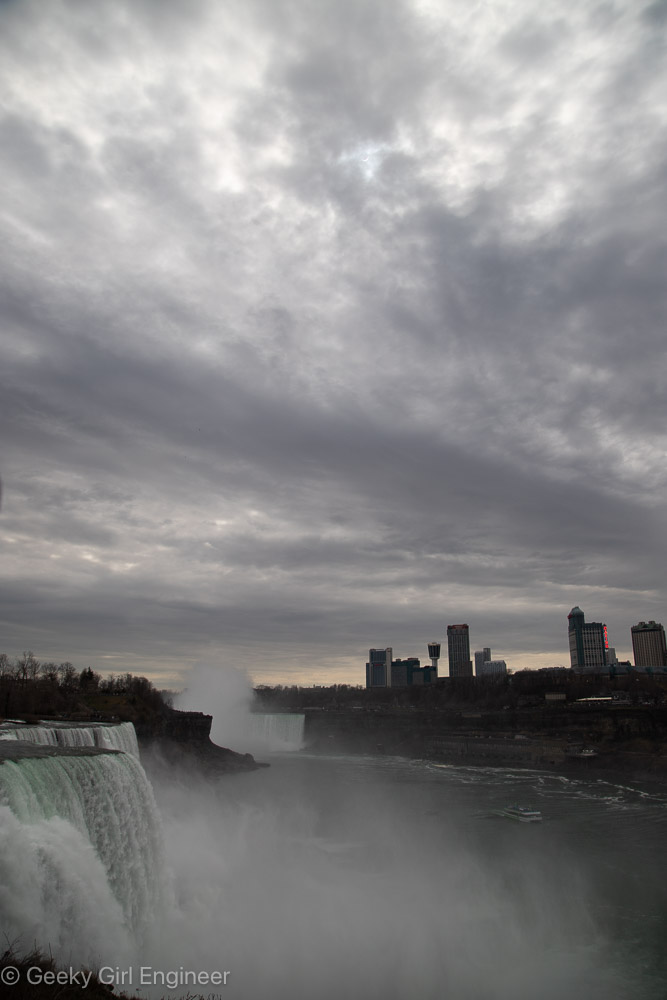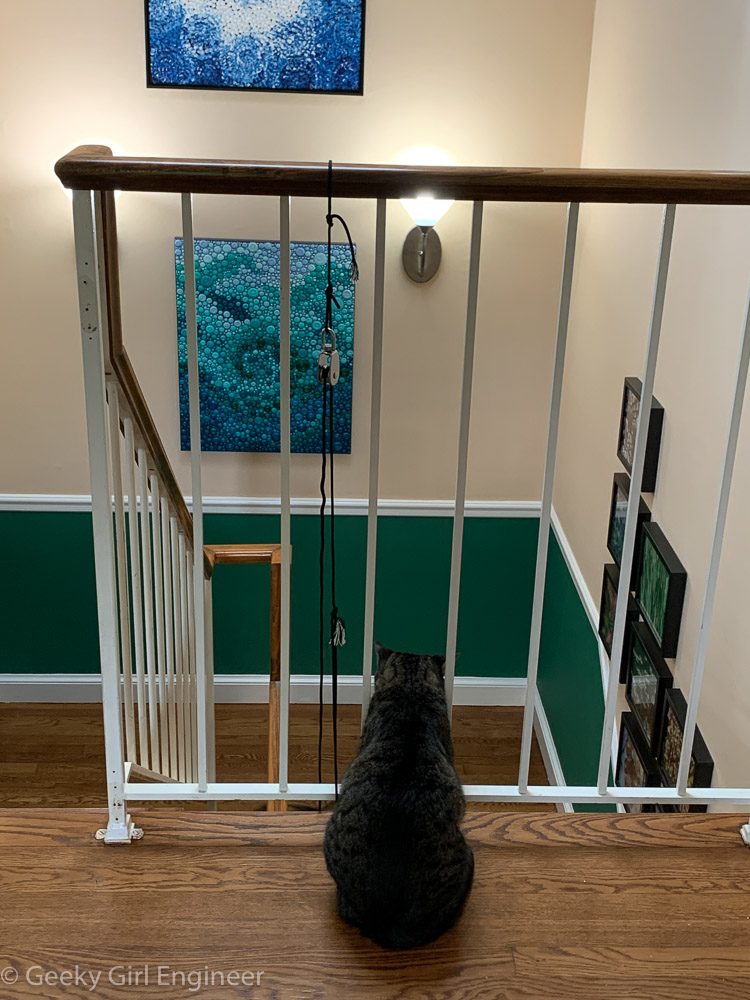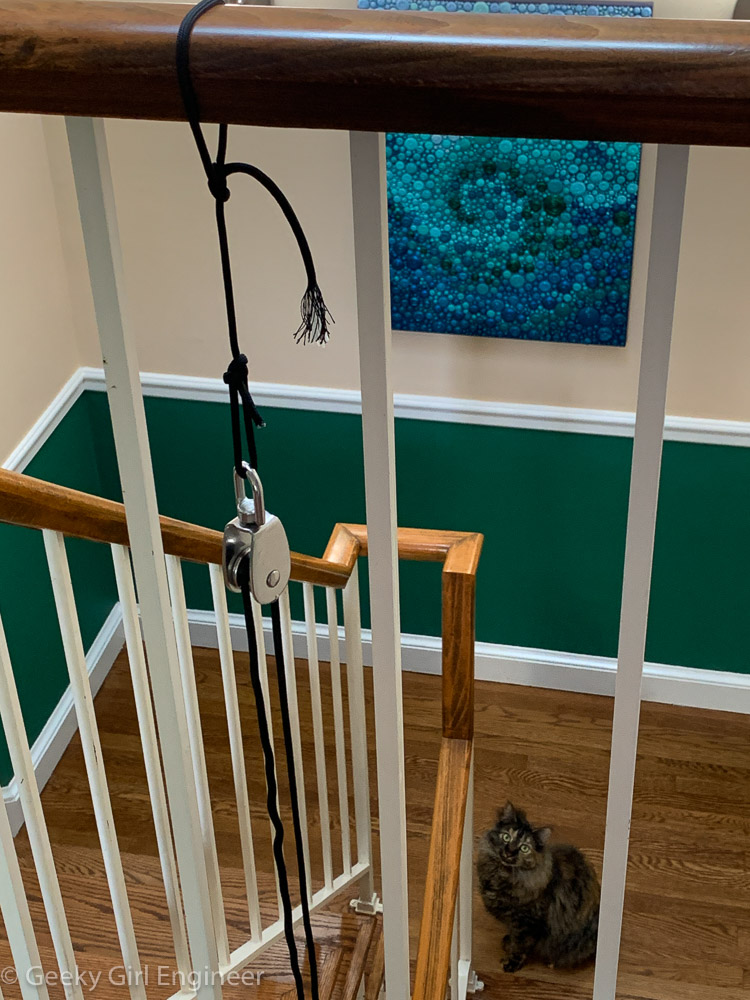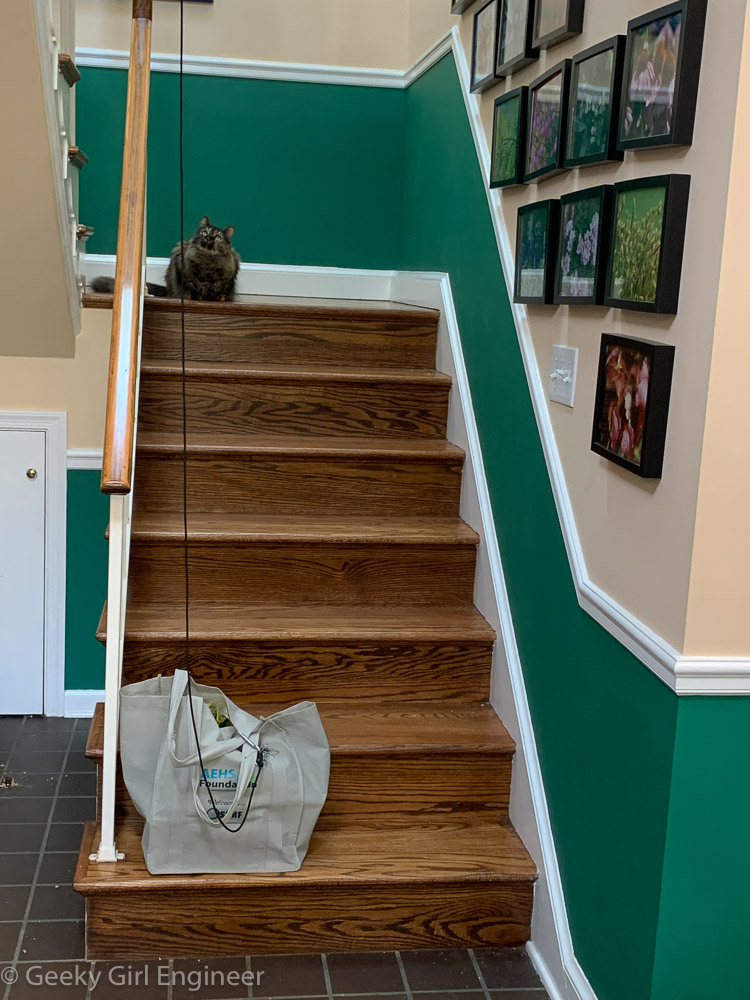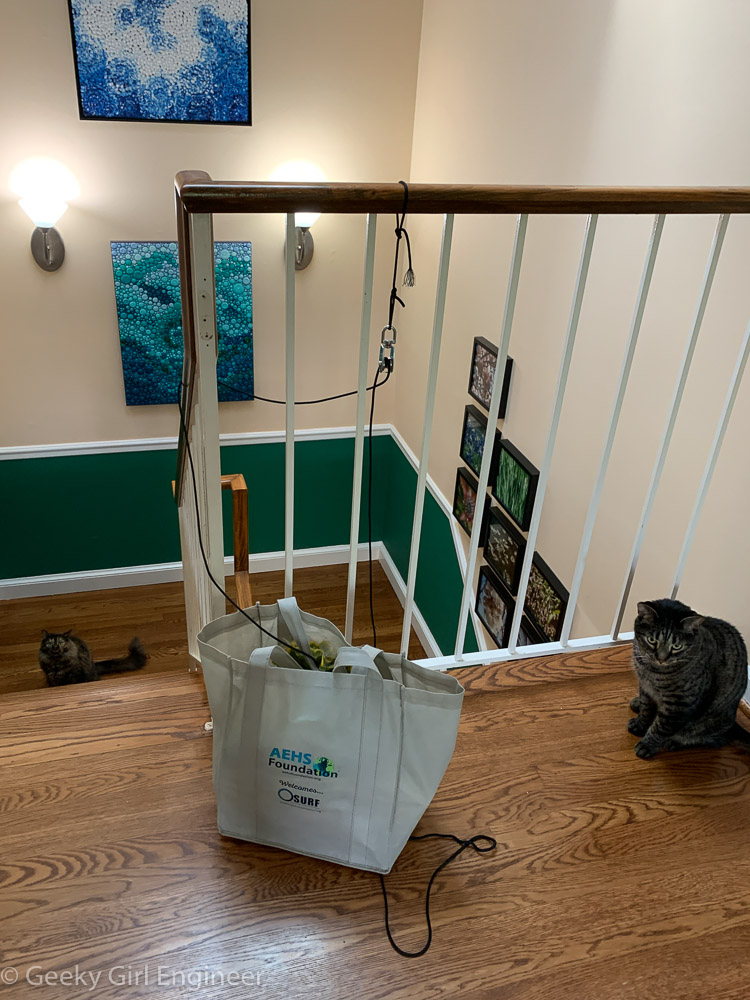I visited Multnomah Falls today while on a cruise of the Snake and Columbia Rivers. I have seen this waterfall in I don’t know how many pictures because it is rather photogenic, especially with the foot bridge that crosses in front of the upper portion of it. The area around the falls are rather pretty and what most people generally think of with the northwest. It is a 0.2 mile hike up from the first viewing area to the footbridge and not too bad of a hike.
Pendleton Underground
As part of the cruise of the Columbia and Snake Rivers that I am on, today some of us went on an excursion to Pendleton, Oregon. The main purpose of the excursion was to tour an underground portion of Pendleton. They started building portions of the underground in the 1800s. Underground tunnels allowed them to safely carry gold and other goods from one location to another to prevent theft. Later many bars were below ground as well as businesses. We were shown an area where a Chinese man had a thriving business washing and ironing people’s laundry. There was an old shed of sorts that was well insulated to store ice for an ice cream parlor above. There was also of course the expected speak easy used during Prohibition.
I’ve taken a few underground tours before, similar to this one. This one felt somewhat disjointed. It covered numerous time periods. They also had some examples of things that weren’t actually underground, but I guess they needed to fill the area, and also show a little above ground history. However, it got somewhat confusing understanding what had and had not actually been underground.
Lewiston and Clarkston
Today I started a cruise down the Snake then Columbia River. The cruise started in Clarkston, Washington. Clarkston is seemingly a twin city with Lewiston which is on the other side of the Snake River in Idaho. I have been planning this trip for close to two months, and it was not until night before last while staying Lewiston before joining the cruise group that I made the connection of the city names. Lewiston and Clarkston. Lewis and Clark. Almost everything in the area pays tribute to Lewis and Clark and their expedition. Why it took me so long to make the connection of the city names I have no idea. Anyway, Lewiston and Clarkston are at the confluence of Clearwater River in Idaho and the Snake River which forms the boundary between Idaho and Washington. The area is interesting geologically and geographically and pretty in its own way. There is a lot of columnar basalt in the area, which I rather love seeing. There is a overlook in North Lewiston, which provides nice views of the confluence.
Hanford Reactor B
Yesterday I went on what is pretty much a nerd tour of Hanford Reactor B. Hanford is the Department of Energy facility where they made plutonium to make nuclear bombs, and Reactor B was the first reactor built during World War II to make plutonium. It is now a National Historic Landmark. The tour included a long bus ride to the site, which gives you a better understanding of just how big Hanford is. The tour then includes several hours to wander around the building, and several presentations by docents. I still can’t quite get over the fact that the public can tour a building where they used to make plutonium, which is rather radioactive and toxic.
The science and engineering behind the facility was impressive, and I also enjoyed looking at 1940s era technology and signage. I don’t if it was that era, or the facility, or what, but there were some fun signs all over the place. There were also some hidden historical signs, like all the clocks were stopped at 10:48, which was time on the night of September 26, 1944 when the reactor achieved fission for the first time. I don’t know why, but I was amused that almost every room had a “broom” station, which were pegs on the wall where a broom and dustpan were hung. I think I only saw one room where there was actually a broom in its proper station. I guess they do less sweeping now, or they have moved onto vacuum technology.
I really appreciated that you could wander around and spend your time looking at everything. Most of the areas have decent signage to indicate what you are looking at, although the engineer that I am, I would prefer perhaps a bit more detail. My one criticism of the tour was that they completed glossed over the amount of environmental contamination created at Hanford. In an intro video we watched before taking the tour, they briefly mention that waste was buried to be dealt with later. The docent at one point said they are cleaning up the site, which is an understatement. I know enough about the site to feel like they just didn’t want to admit the contamination they caused. Signs of remediation are present in the building. There were plenty of pipes that obviously had asbestos, and the pipes had clearly been abated to encapsulate the asbestos, so it would not become airborne and thus a hazard. There were dosimeters on the walls everywhere, which were clearly been analyzed frequently.
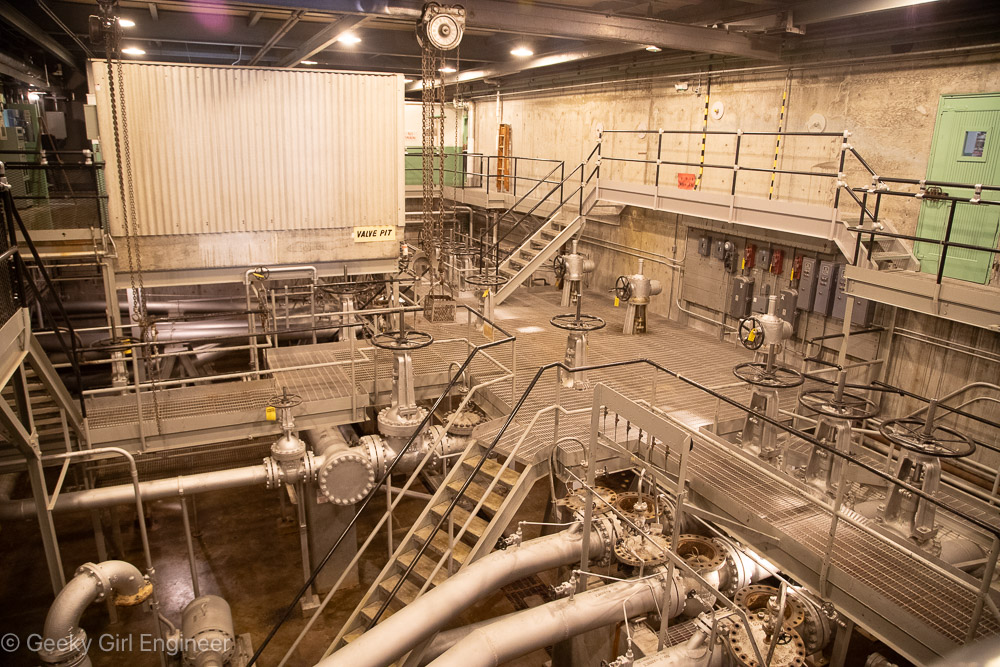
Valve Pit Room; notice in lower right, tops have been removed from access openings; tops were removed at Russian inspectors’ request to prove no water was going through pipes as part of treaty to reduce nuclear weapons
Sine wave bargello quilt
A friend of mine really liked the parabola bargello quilt I made for myself. She asked if I could maker her one with a sine wave in her favorite colors of blues and purples. I agreed, but I told her she would have to wait a while. She recently retired, so I made it for her as a retirement gift. I am happy with the way it came out. I quilted it to emphasize the sine wave pattern, by an echoing technique. I had a bunch of leftover fabric that I had already sewed via the bargello technique, so I used much of it to sew two pillow shams as well as a small throw pillow.
Camera bag
One of the things I like about making things, especially with sewing, is that I can design the thing to my exact specifications. I am going on vacation soon, and I wanted a better camera bag. I have one, but it is heavy, and it is not easy to wear. It also lacks certain features that I wanted. I wanted a lighter weight bag that would still cushion my camera and would travel easier. I also wanted to be able to wear it across my torso or as a backpack. Thus, I designed and built my own. I used denim from an old pair of jeans for the exterior fabric, as I think denim is fairly tough. I also plan to coat the bag with a fabric wax to protect my camera in case of precipitation. I have loops, so I have option on how to wear it. I also created a sleeve, so I can slip it over a luggage handle and travel with it easier. Finally I created a couple of pockets, including one for a water bottle. I cut the denim such that I got an extra pocket from one of the jeans’s back pocket.
Total Solar Eclipse
I came to Niagara Falls for the 2024 total solar eclipse with the idea of spectacular images of the eclipse above the falls. Unfortunately the weather did not cooperate. I was really lucky with clear skies for the 2017 eclipse, so the overcast skies was really disappointing. I got a couple of glimpses of the partial eclipse. Totality did not disappoint. It’s been seven years since I last experienced totality, but I feel like totality was more dramatic this time. It was so overcast that it was already cool and not bright, so when totality hit, it felt very much like night and was very dark.
Stair Pulley System
Surgery for scoliosis was two months ago now, and I am still recovering. My ability to walk is improving slowly as my body adjusts to the new spinal arrangement. I have a limp that is going to take time to fix. I can climb and descend stairs, but I have to hold onto the railing with one hand, and it is really better if my other hand is at least touching the other side. The main part of my house is on the second floor, so I have had to figure out how to get things up and down the stairs if I want to live on my own.
There are a couple of solutions, but I am engineer, so naturally I installed a small pulley system to transport items up and down the stairs. I think it is the most efficient solution. I bought a small pulley with accompany hook and rope, and I installed it on the railing overlooking the stairs. My stairs have a landing at the halfway point where they change directions, so that made the pulley system really easy to install and allow for a straight path for items to ascend and descend.
Note that my cats oversee all operations of the pulley.
Scoliosis 4 Weeks Post Surgery
Four weeks ago today, I was in the hospital having had surgery to correct my scoliosis the day before. My neurosurgeon said the surgery lasted about six hours, but I was sedated for about 12 hours. They sedated me at about 7:30 a.m., but my neurosurgeon said surgery did not begin until about 9. I woke up after 7 p.m., but my neurosurgeon said surgery ended around 3. I had warned the anesthesiologist before that I was a slow metabolizer. My guess is that they did not give me a reversal, but they just let me sleep after surgery, which was probably a good idea.
I have no idea how many people were actually a part of the surgical team, but I know there were two neurosurgeons to decrease the amount of time I was in surgery. I learned right before surgery, that there was also a surgical neurophysiologist who would be monitoring my nervous system the entire time I was in surgery to make sure the neurosurgeons did not harm my nerves. [A few days after surgery, I told my neurosurgeon that he should have told me about the surgical neurophysiologist months before surgery because knowing someone was there whose entire job was to make sure my nervous system was not damaged made my stress levels go down as that was one of my big concerns. He apologized and said he thought he had.] Then there were who knows how many nurses, the anesthesiologist, the nurse anesthetist, and at some point during surgery, an x-ray technician came in, so they could check their work.
After surgery, I now have a rather renovated, blinged out spine that has been enhanced with two rods (one per side), 26 screws, and (by my count on the x-ray) seven artificial discs. My neurosurgeon swears I will not set off every metal detector I come near. I have not tested this yet. According to the radiology report, my spine has been fused from T7 down to the pelvis, which I think is about half my spine. So yeah, my spine was rather messed up before surgery. Sadly, as best I can tell despite all that metal, my spine does not seem to have bionic abilities.
I spent a week in the hospital. The day after surgery, in the morning I was able to stand, but then I got lightheaded and had to sit back down. Later that afternoon I was able to stand again and sit in a chair a few feet away. I was walking with a walker I think the next day, only a few steps though. After a few days though, I was doing slow laps around the hospital wing with my walker. Once I started getting out of bed, I was given a rather uncomfortable back brace, which would not be so bad except it strangles me when I sit upright.
I have been home for three weeks, and I can’t express how happy I was to get out of the hospital. It took several days before I could sleep in my bed. There were a variety of reasons for that, but for the first couple of days, the couch and ottoman were just more comfortable and easier. Now I have pretty much mastered the log roll to get into and out of bed. I can manage a lot on my own, but I have trouble getting things below waist height. I am not supposed to bend, and my thighs, particularly my left thigh, are so tight, I can’t really squat either. I am actually not in much pain anymore. When I go to bed and lay on my back and thus the incision, then I have some pain as it is still rather sensitive. Most of the problems I have now is that my body got used to my scoliosis and compensated in various ways. Now my body is trying to get used to this new spinal configuration. My left leg is much weaker than the right, and as the scoliosis was to the left, clearly I had been compensating for some time unknowingly. Also when sitting, I keep leaning to the left.
For several years I have had pain in my back near constantly, and x-rays proved that the pain was exactly at the apex of the spinal curve. The good news is that pain is completely gone. Now I just need to regain my strength and flexibility. I have been given strengthening and stretching exercises, which help. At the physical therapist’s advice, I bought a pair of walking sticks, which I use to do laps around the house to increase my strength and endurance. I still get around with a walker though. I don’t need the walker for support. I need it for stability, as I walk rather wobbly currently. Also, when standing from a sitting position, I need something to push off with my arms.
I don’t regret having the surgery. I admit I am somewhat frustrated by how slow my recovery is, but I know that is to be expected. My only regret is how long it took to get an accurate diagnosis, so I could make the decision to have the surgery. I have suffered needlessly for years. I only hope to get back to normal in the coming months and once again have the active lifestyle I used to have.
Scoliosis
At the age of 49 I was diagnosed with scoliosis. Scoliosis is normally diagnosed far earlier in life. My scoliosis is not some sort of weird adult onset type. In fact my neurosurgeon pointed out evidence on some of my spinal images that showed how long it had been there, but I am getting ahead of myself.
I can remember in junior high when everyone had to go to the gym in shifts, separating the girls and the boys, to be checked for scoliosis. My maternal grandmother had scoliosis, so I was at increased risk, yet it was not caught when I was young. I have never had good posture, but now I look back and wonder if my bad posture was really a symptom. Now, sitting with really bad posture is a mechanism to avoid pain. Basically curving my back puts the spine in an alignment to relieve the pressure, I now realize, based on the x-rays.
I have had back pain for so long that I don’t even know when it started. It has been increasing in pain level and consistency though. I can remember what was my first attack of sciatica and related muscle spasms. It was about twenty years ago, and I was in graduate school. I was having serious nerve pain in the hip area, and I went to the student health center. The physician prescribed a muscle relaxant and pain meds. I went to the bathroom while I waited for the pharmacy to fill the prescription. When I tried to get off the toilet, the muscle spasmed with such intensity, I was not sure when or if I could stand up. I finally did. I didn’t need the pain meds really. I just needed the muscles to stop firing.
Since then, the back pain has gotten worse, and a variety of others issues have come about. Several years back frustrated by the constant back pain, my physician prescribed physical therapy. I needed to build my core muscles I was told. A physical therapist pressed on my back in places trying to get the muscles to release. The muscles generally refused to release, and I give the physical therapist the benefit of the doubt that she never pressed in the correct location to feel my spine in the not correct location.
A couple of years ago, I started having hip pain. My physician sent me to an orthopedic specialist, who ordered x-rays. Sadly the x-rays were aimed at my hips and just out of range of the lumbar region of my spine. Another missed chance to see the scoliosis. The specialist said I had IT band syndrome. Basically I was walking funny because of my back pain and/or sciatica, so that caused the hip pain. I just needed to stretch the IT band, and I would be fine. He said I needed more physical therapy. I declined to go because I had been there, done that.
For years now, I see a dermatologist annually for what she calls “mole patrol” to check for any signs of skin cancer or other issues. She checks my entire body. I give her the benefit of the doubt that they way I lay down on my stomach while she checks my back does not make the spinal deformity obvious. I have had physicians and nurses on countless occasions listening to my lungs with a stethoscope. I get annual physicals. I give them all the benefit of the doubt that they never noticed the spine out of alignment.
Two years ago, as I was once again pressing my hand to the part of my back that always hurts, it dawned on me that my back has a lump of sorts where the pain is. Why it just occurred to me then I have no idea. I am sure it had been there longer. Feeling around my back, and I know something is wrong. Is it my spine I wonder? The lump is such that when I lay on a flat surface, I cannot lay flat. My left side touches the surface when I lay flat, but not the right side. I go in for my annual physical and ask the physician. I hadn’t seen this physician but maybe once before because the physician I normally saw at the same practice had recently moved, and I needed a new physician. The new physician asks if I have scoliosis. I don’t know I say. She has me bend over and check my spine. No, she says, the lump is just soft tissue.
The coincidence of the location of the lump and my pain is too much for me to ignore. I am also slightly concerned that I have soft tissue lump on my back. Is this a giant cyst? I go back to the same practice but see a different physician. I explain the issue. She says, let’s just get an x-ray. The radiology report says “Some height loss at the right aspect of L1 vertebral body. Accompanying approximately 50 degree leftward curvature centered at L1-L2, accompanying advanced multilevel disc height loss, endplate degenerative changes. Mild wedge compression deformity of L1, with mild accompanying increased kyphosis.”
“Some height loss.” Did I mention I used to be 5’7″, but a couple of years ago during a physical they said I was 5’6″. I remember arguing that no, I was 5’7″. It never dawned on either the nurse, doctor, or myself why in my late 40s I had lost an inch.
So yeah, I have scoliosis. That’s the problem. The radiology report was a shock to say the least. My physician sends me to a neurosurgeon. He orders more images, more x-rays, CT scans, and MRIs. The radiology reports all agree on scoliosis, but some say 40 degree curve, and some say 50 degree curve. No matter which, it’s a lot. When I viewed the images with the neurosurgeon I started crying. They say a picture is worth a 1000 words. Seeing an image of my spine was somehow far more emotional, devastating, and hard to handle than reading a very clinical radiology report with lots of words that I had to look up. My neurosurgeon pointed out bone spurs on two vertebrae at the apex of the curve on some of the many images. The bone spurs formed to try to protect the vertebrae from rubbing against its neighbor he says. That’s how we know this scoliosis started a long time ago.
I used use a standing desk at the office. Until several years ago, I used to go for five mile walks. I used to go for 20 mile bike rides. I can’t anymore. I can barely walk more than a couple of blocks before the back pain starts. On my road bike, I have to stop after 15 minutes or so to stretch my back because of the way the road bike forces me to lean over in a manner that stresses my spine. At least my hybrid bike is better because of the way I sit in it. It wasn’t always like this. The back pain used to be on and off. Now it is constant. I used to run. Less than a decade ago, I ran fairly regularly, and in fact I once could run 10 miles. I was never fast, but I had endurance. Knee pain forced me to stop. Now I have to wonder if the knee pain was at least somewhat related to the scoliosis.
I feel like I have been gaslit by the medical community for at least a decade. For as many times as I have complained about back pain, the solution was always to lose weight and build my core muscles. I am overweight, but I eat a healthy diet, and I am very active. I exercise near daily. Elliptical machine, walking, biking, weight and resistance training, rowing machine, etc. At least I used to. There is only so much exercise you can do when the pain is so intense and constant. However, core muscles and weight loss was always the issue I was told. How much stronger did my core have to be before the pain ends? I am not even sure if they believed me when I said I work out every single day. Maybe they did, but they just didn’t care. More to the point, I will also never understand how the one physician could possibly feel the lump on my back and call it soft tissue. How can anyone, especially a physician, feel my spine in a completely incorrect location and not realize it?
My neurosurgeon said that with scoliosis of less than 30 degree, surgery may not be necessary. Mine is severe enough that surgery is really the only option other than “putting out fires” as he says. My quality of life is degrading to such a degree that I decided surgery was my only option. I want to be able to continue to travel. I want to be able to go for long walks or long bike rides again. Surgery is no guarantee that my quality of life will return to what it was a decade ago, but I feel like I have to take the chance.
My neurosurgeon and I discussed the surgery options. I agreed with him that the more invasive surgery is better if only because my spine is not just curved, it is also rotated, which adds more complexity to the surgery. He said there is a less invasive option, which divides the surgery up over two days, but he was worried with the spinal rotation, he still might have to go more invasive for the second surgery day. I agreed it was better to just do everything in one go with the more invasive surgery. Two neurosurgeons working on me at once for a surgery that will probably take six hours.
Surgery is tomorrow, and I am terrified. I am scared of dying. I am scared of becoming paralyzed. I am scared I will still be in constant pain. I am scared of going through all of this, and I can’t resume the life I used to have years ago. I am not afraid of months of physical therapy. I am just scared because there is no guarantees. I can’t do my engineering calculations with safety factors and redundancy to have a high degree of confidence that my design will work. I can only trust in a medical team because almost everything is out of my control. About the only thing I can control is donating two units of blood to myself in the past week and a half because my neurosurgeon said with the more invasive option I might need a transfusion. I donate blood on a regular basis. One unit of blood doesn’t really phase me anymore. Donating a second unit of blood to myself one week after the first, per the schedule given to me by the blood donation service, rather zapped me of my normal energy. I plan to tell my surgeon and anesthesiologist that even if I don’t quite need a transfusion, I would rather like some of my blood back.
I have been preparing for tomorrow for several months now. Pre-operative exam with blood tests and EKG. Autologous blood donation. More blood tests at the hospital. Now I type this blog post to try to sort out my emotions and keep myself calm because I am terrified. I really don’t want to have this surgery, but I don’t want to live the rest of my life with my quality of life rapidly decreasing with constant back and hip pain, sciatica, and who knows what else may start. I have to have faith. Faith in God, and faith in my neurosurgeons, anesthesiologist, nurses, and everyone else to fix me. God, please be with my medical team and make me better.



